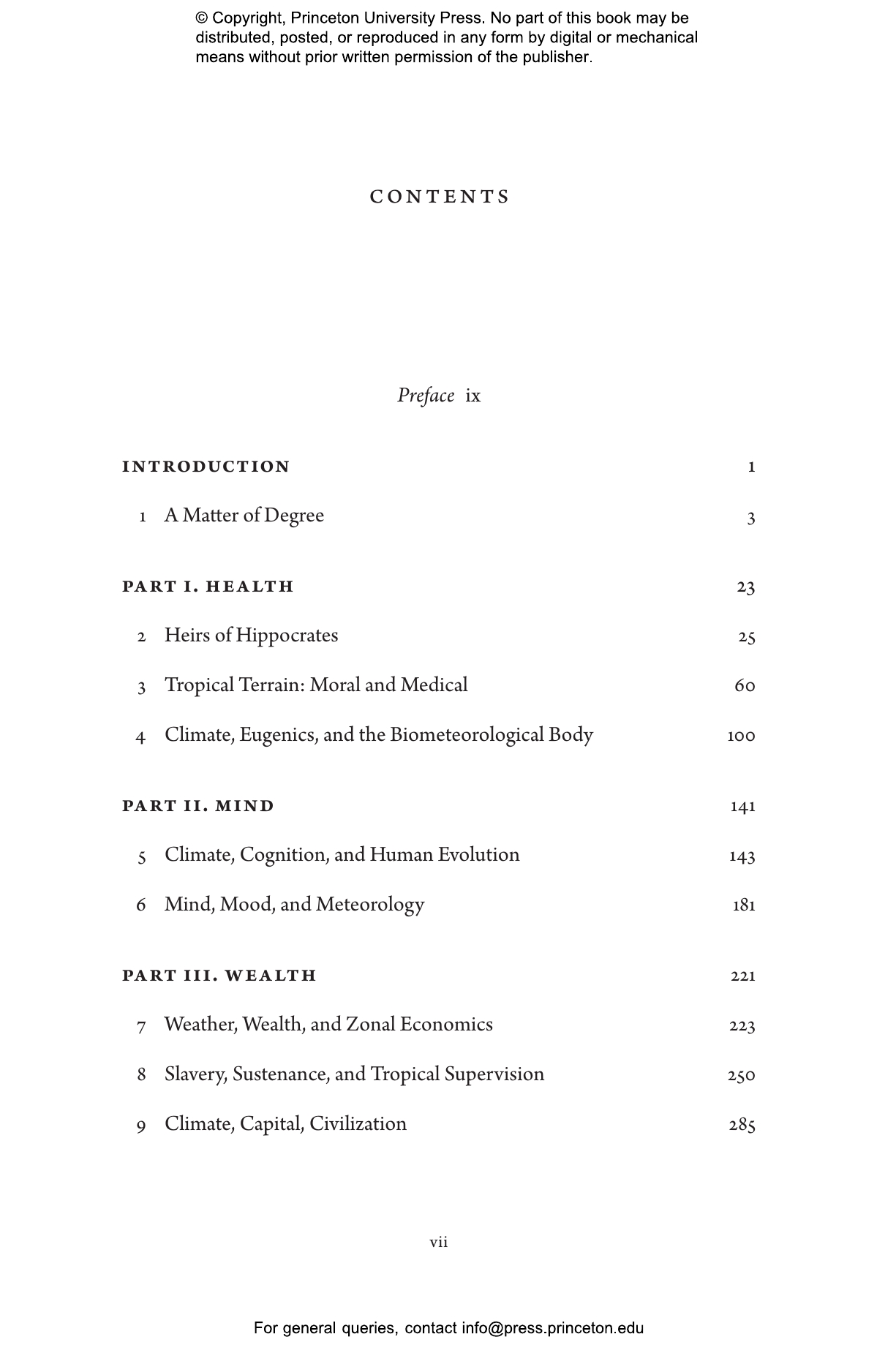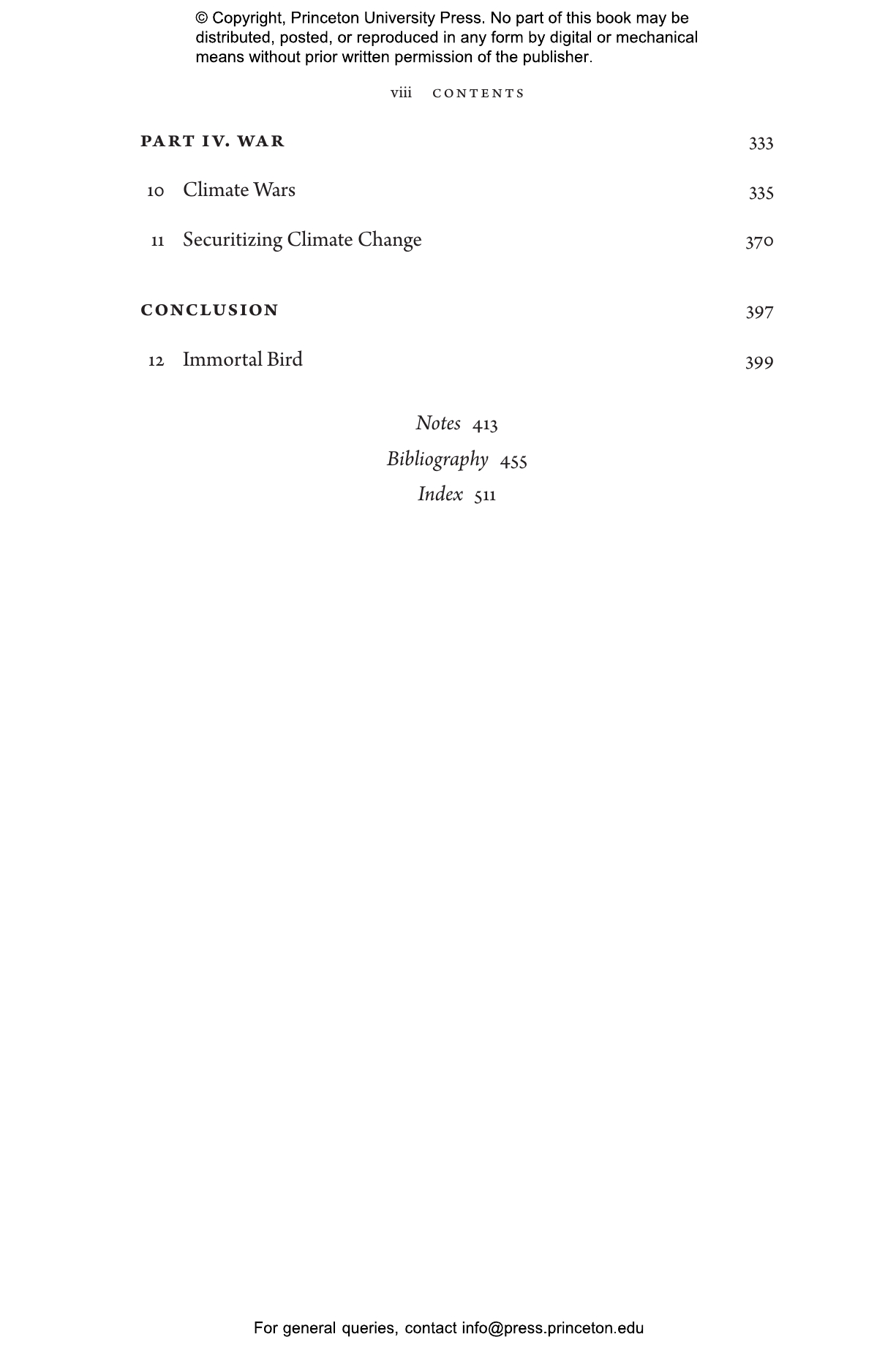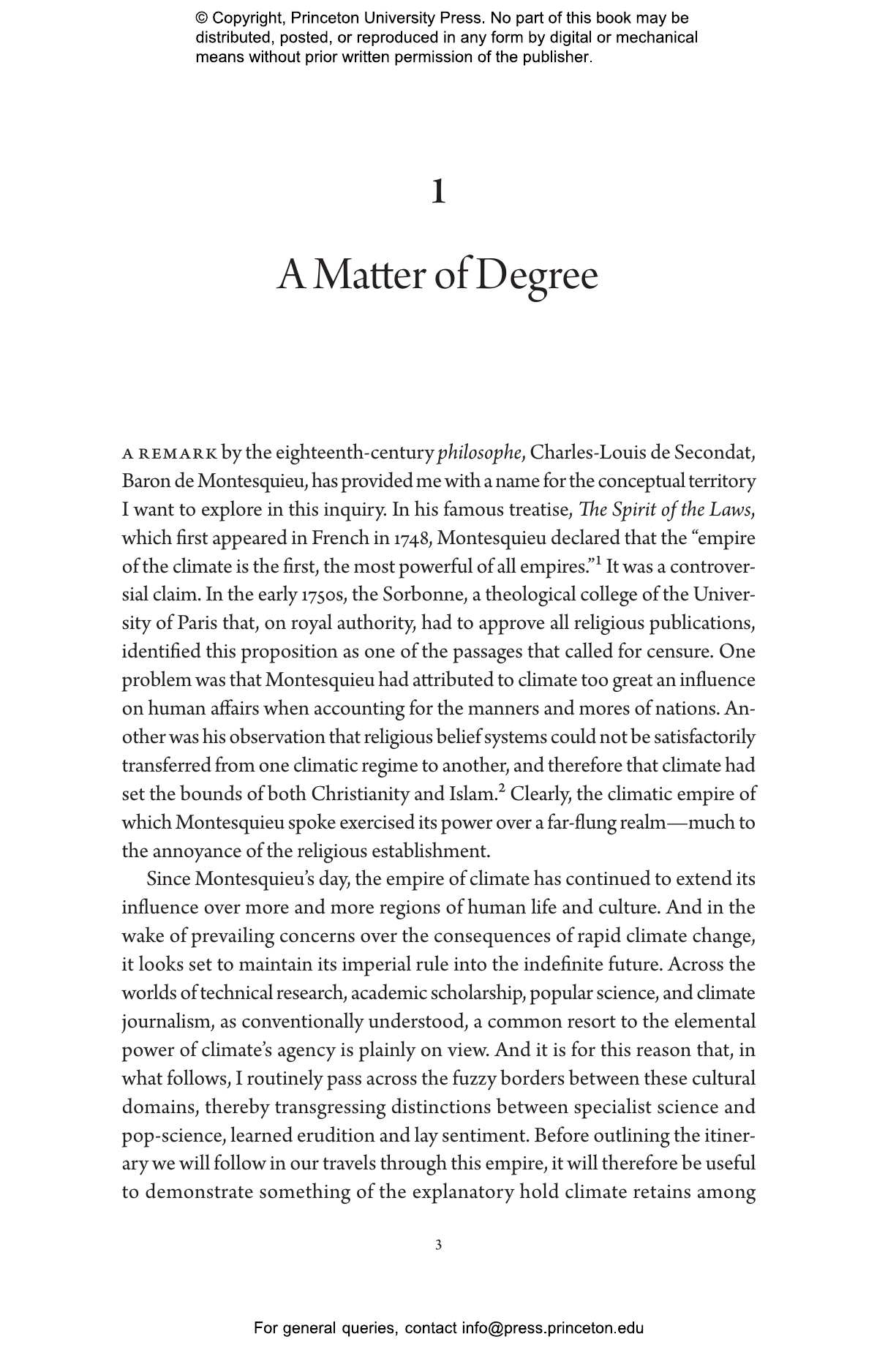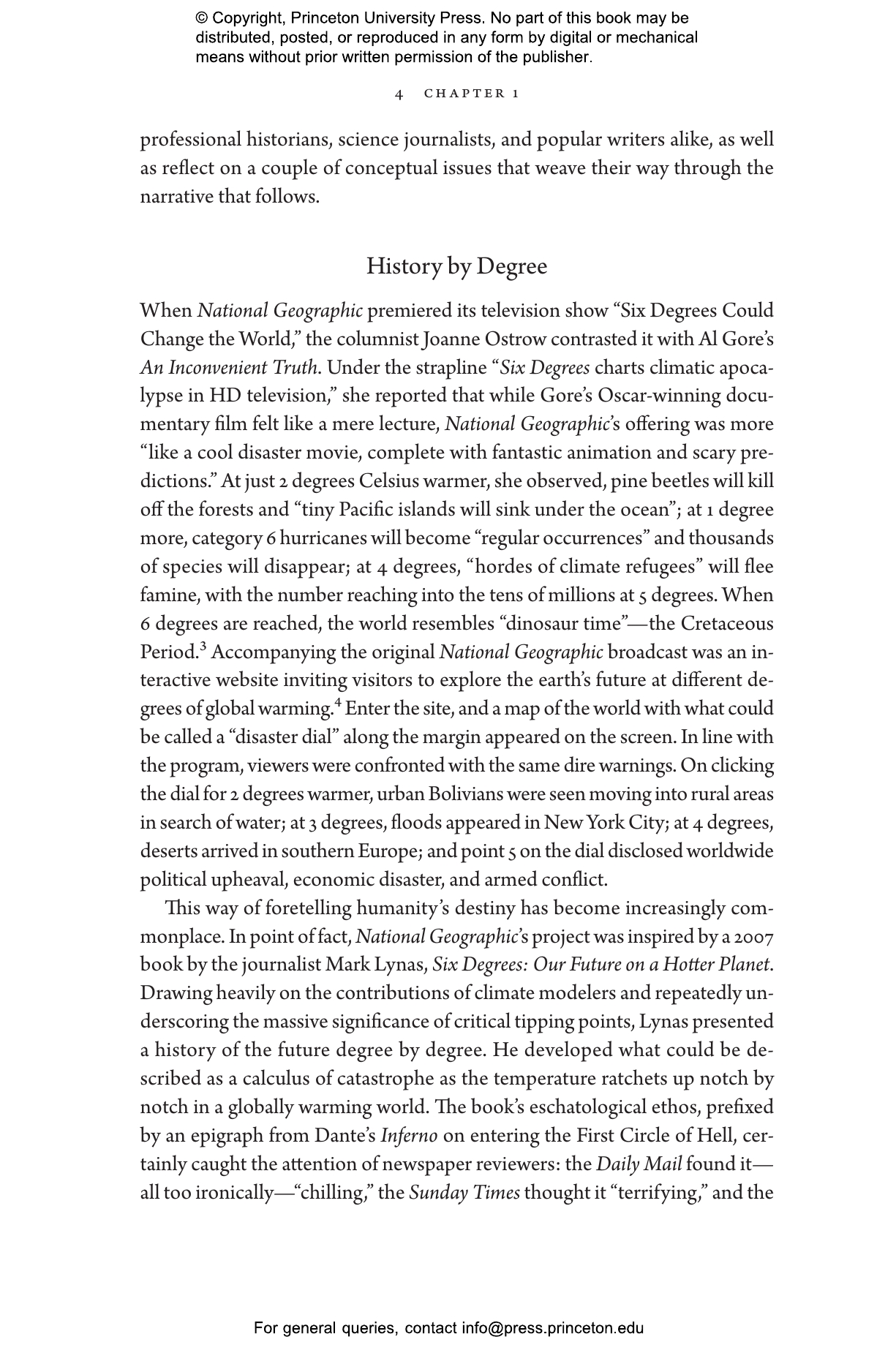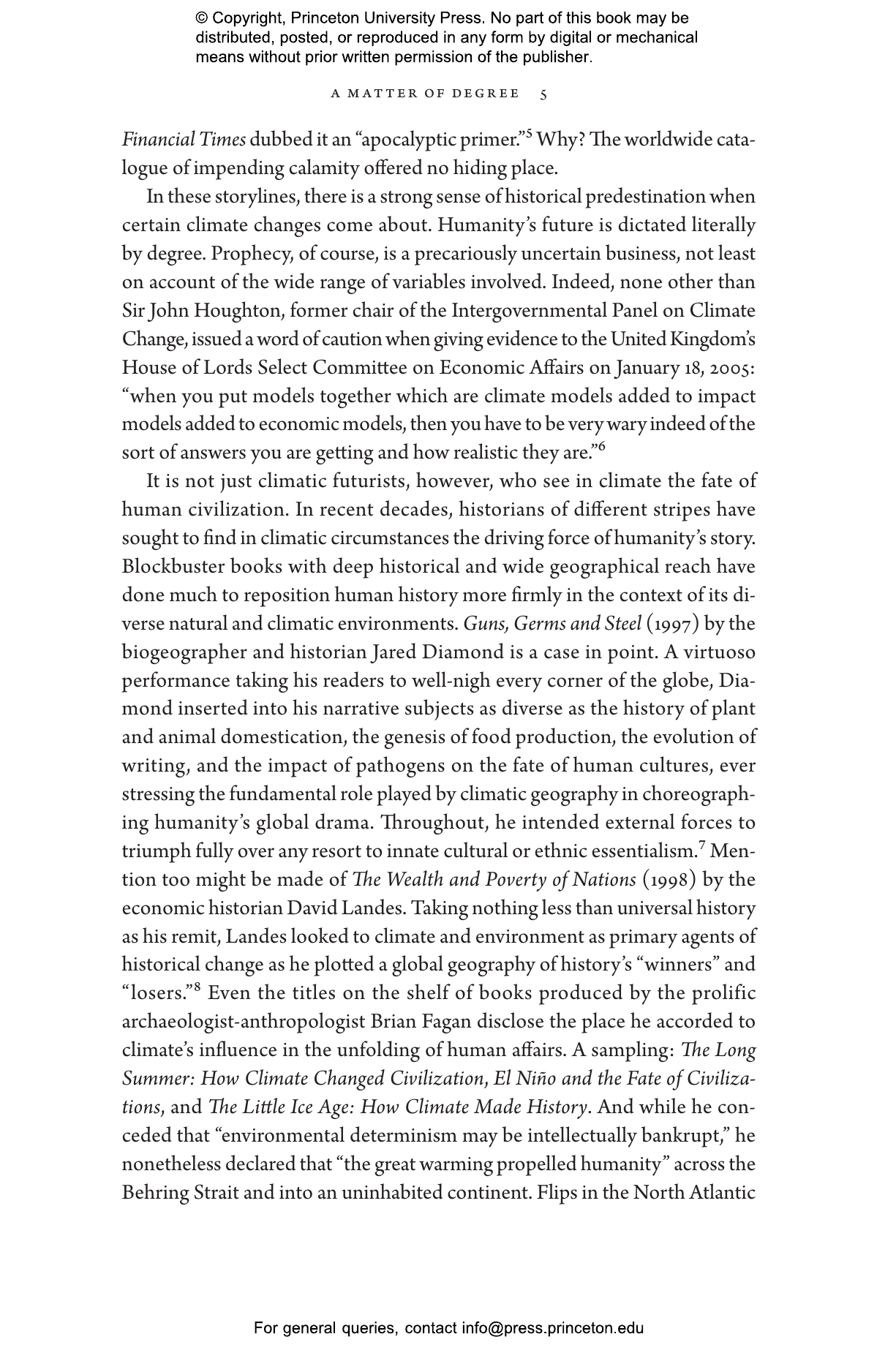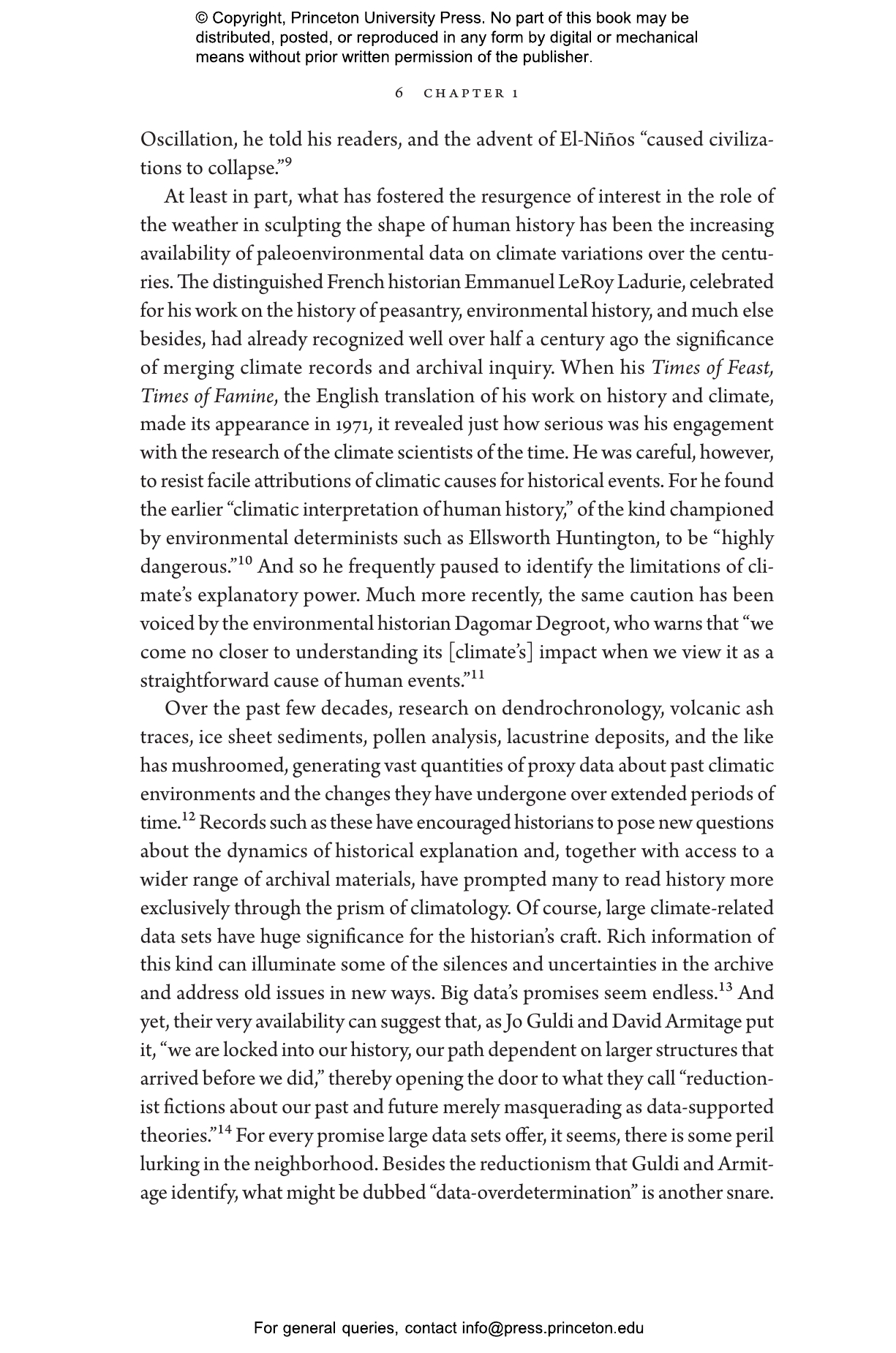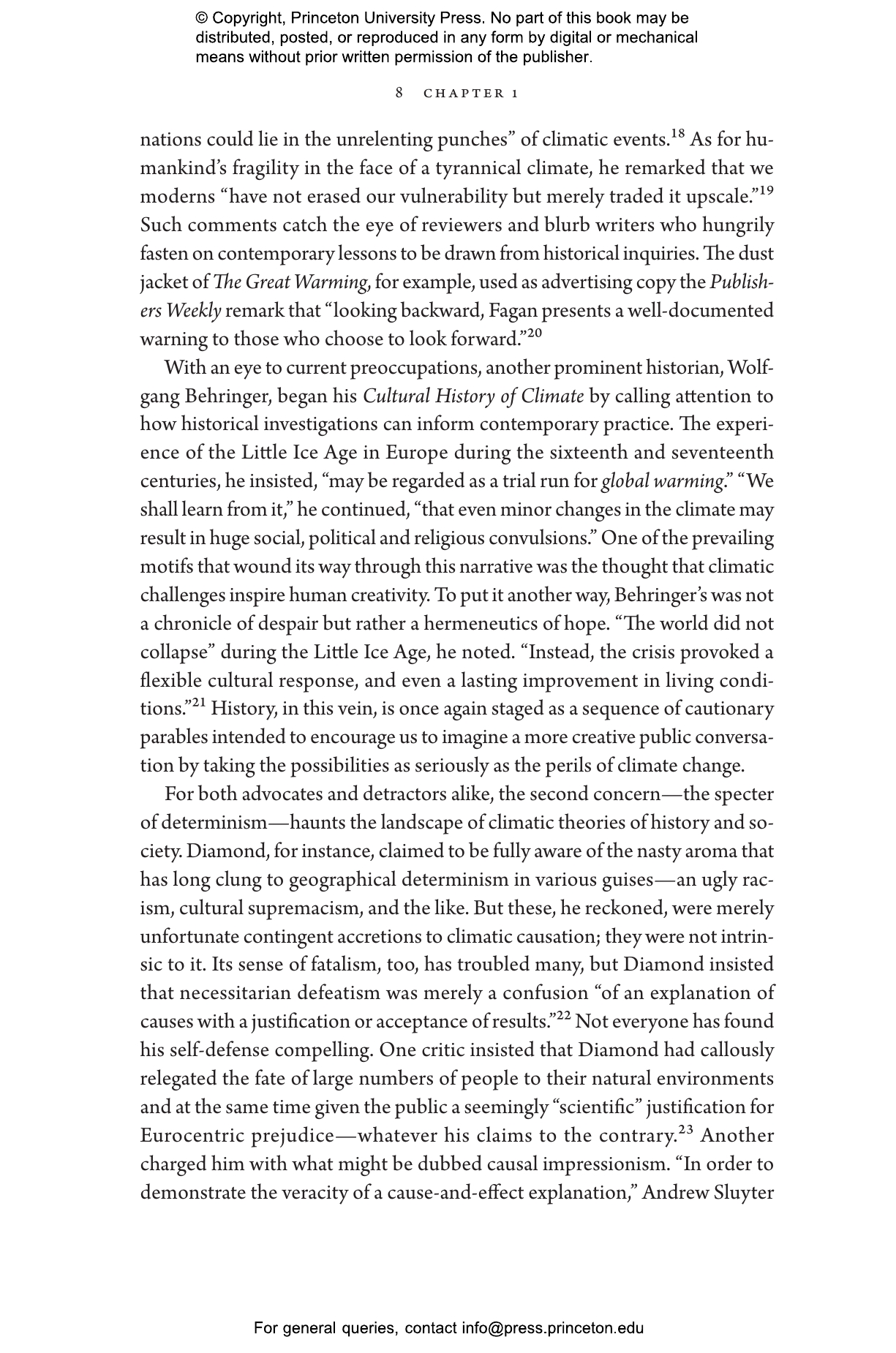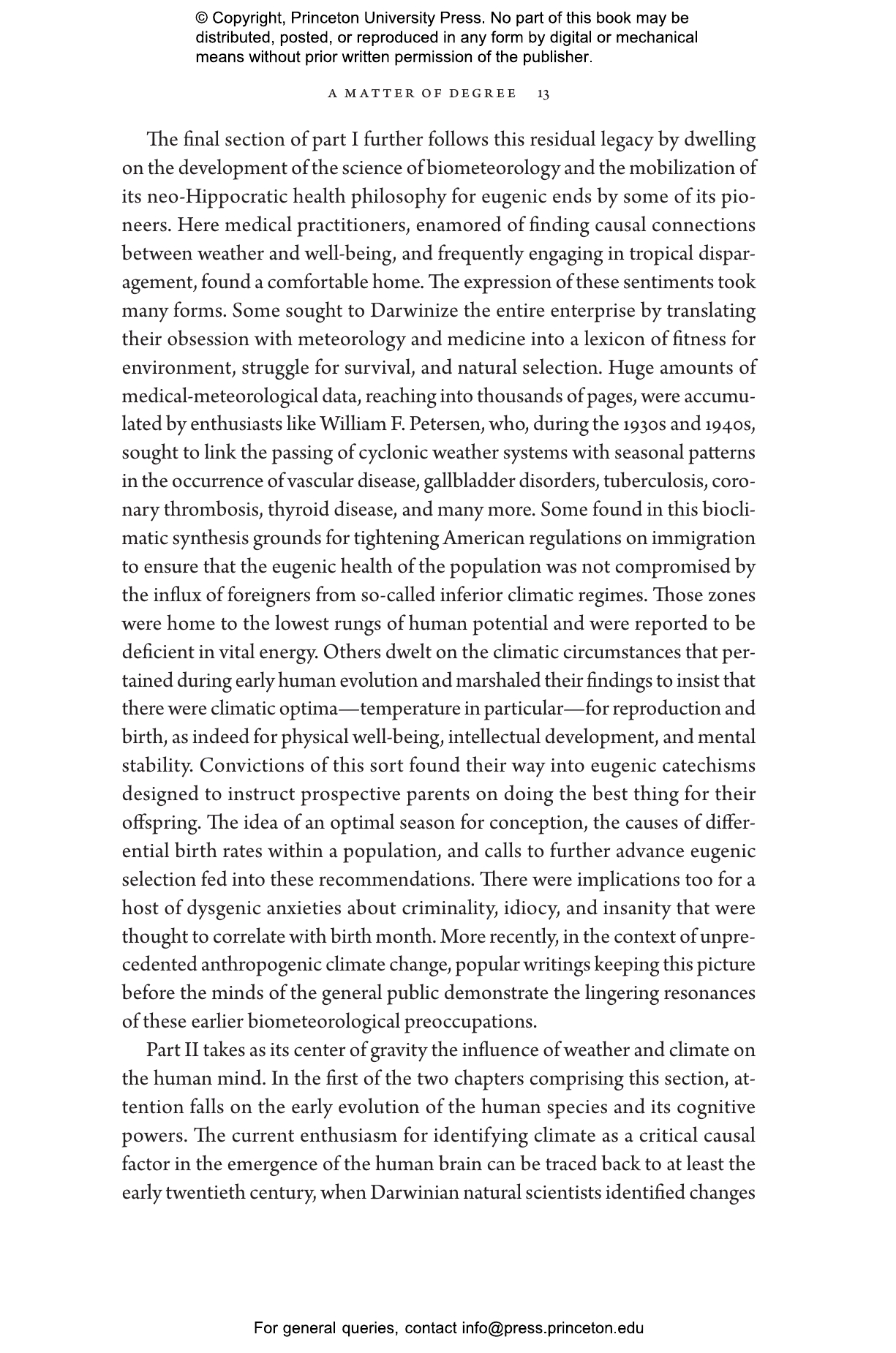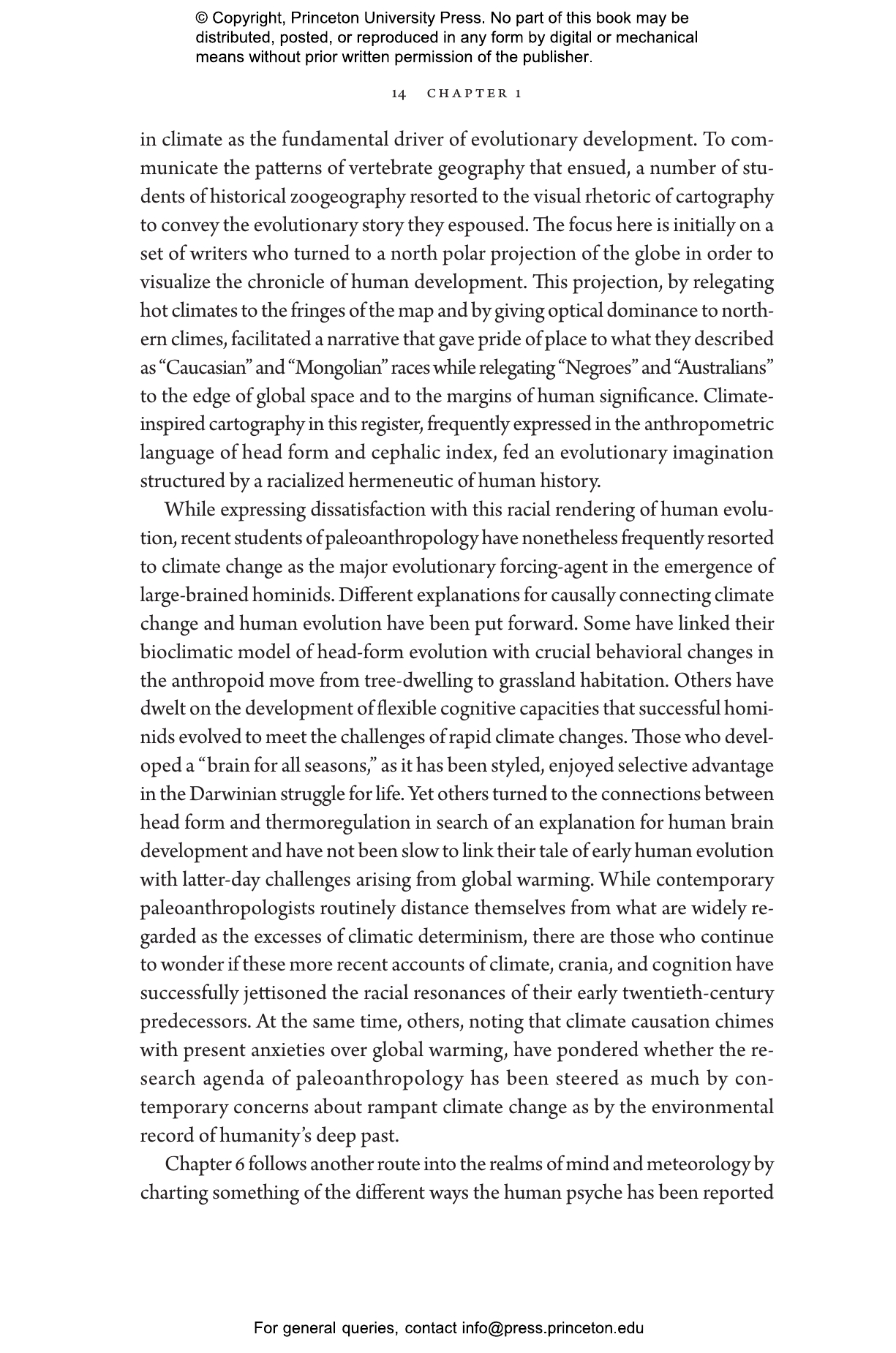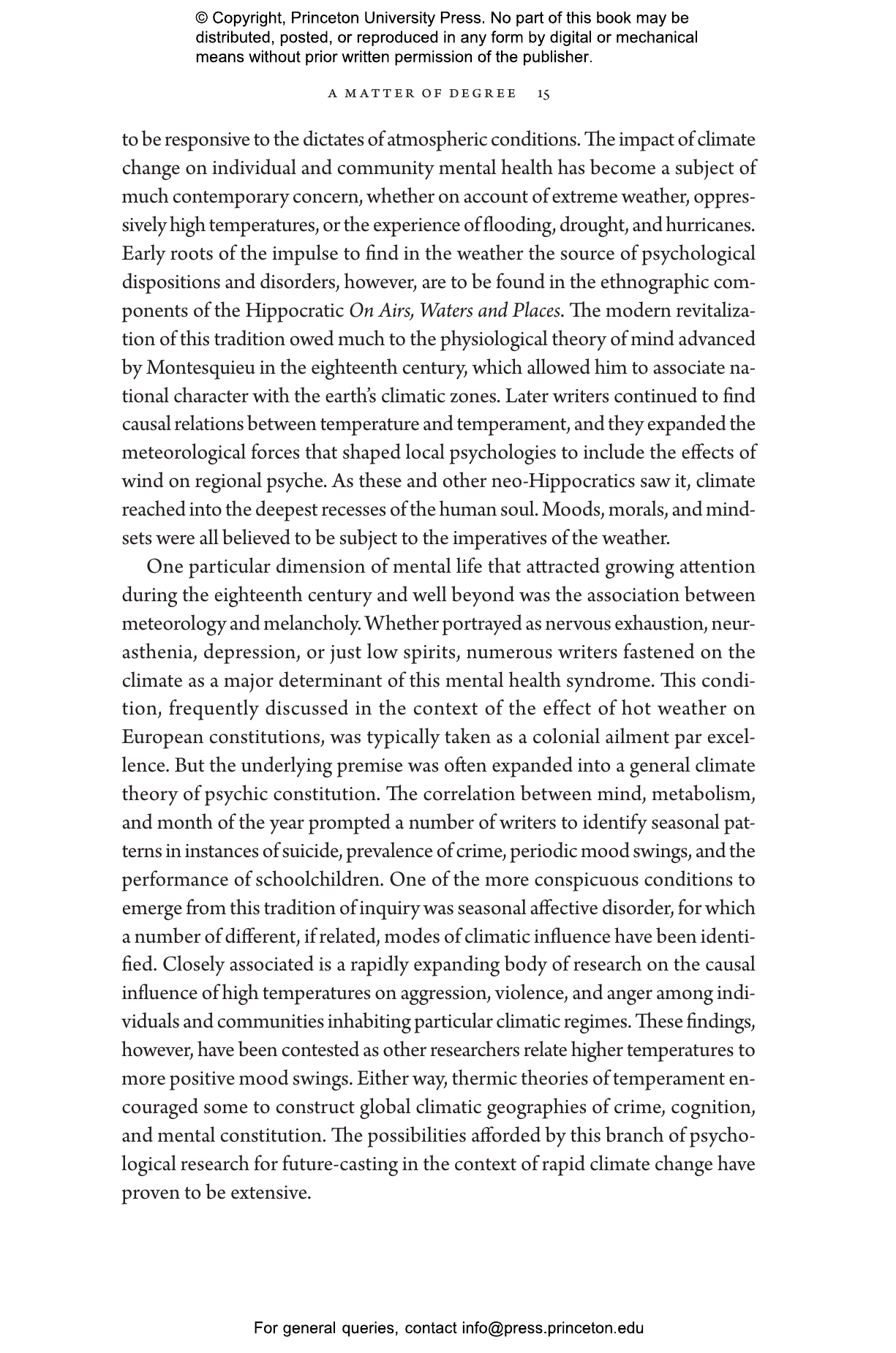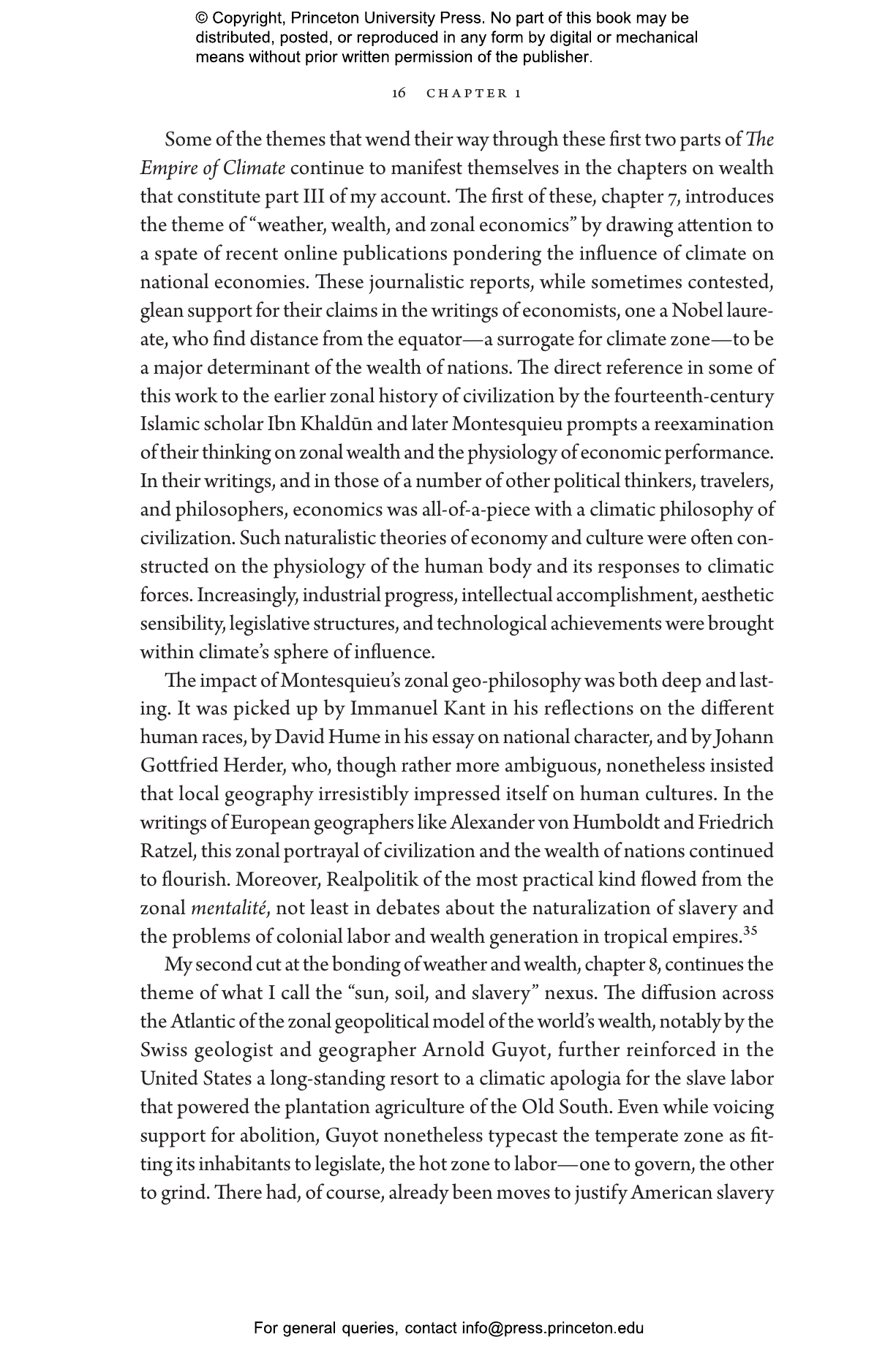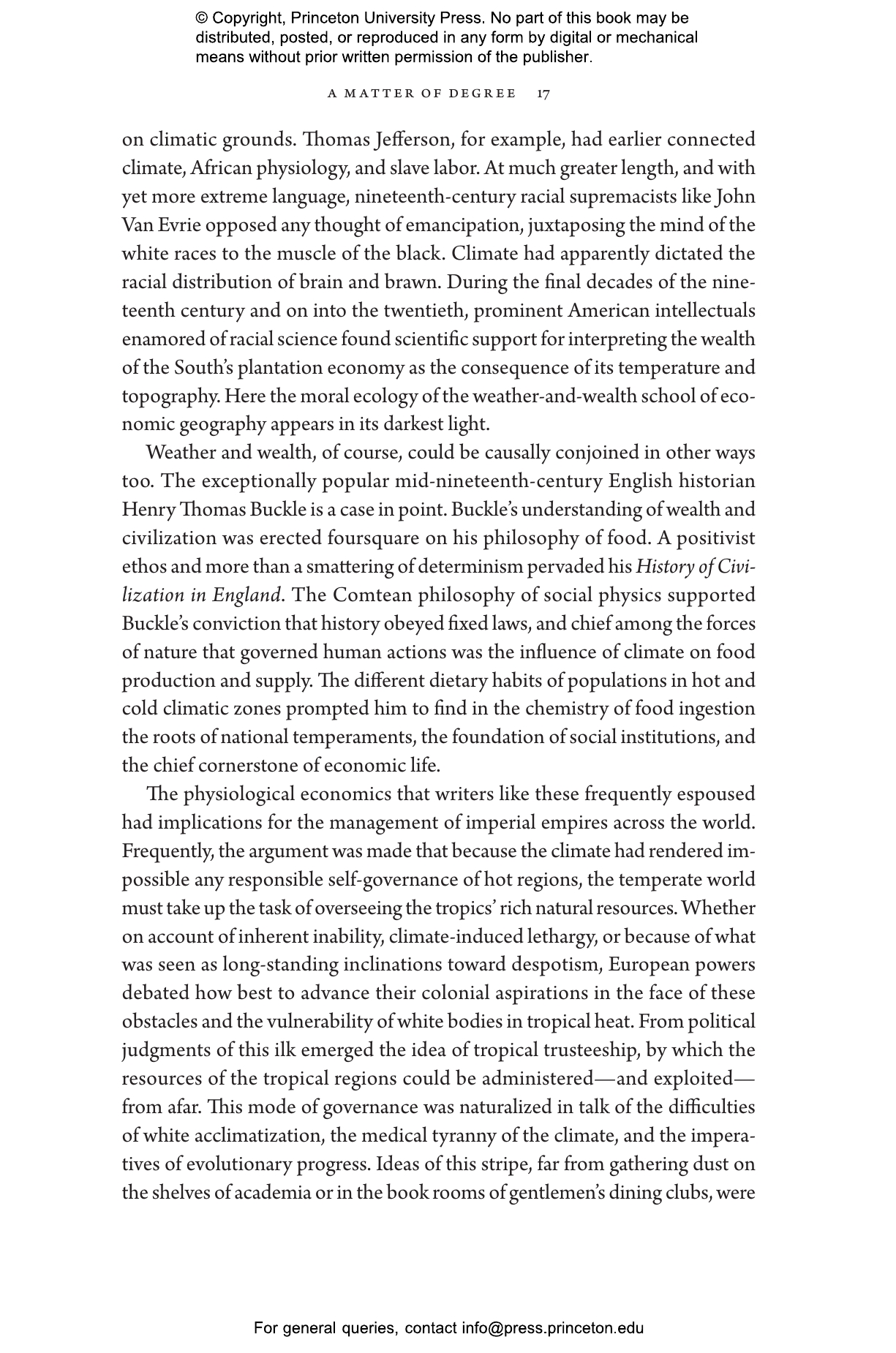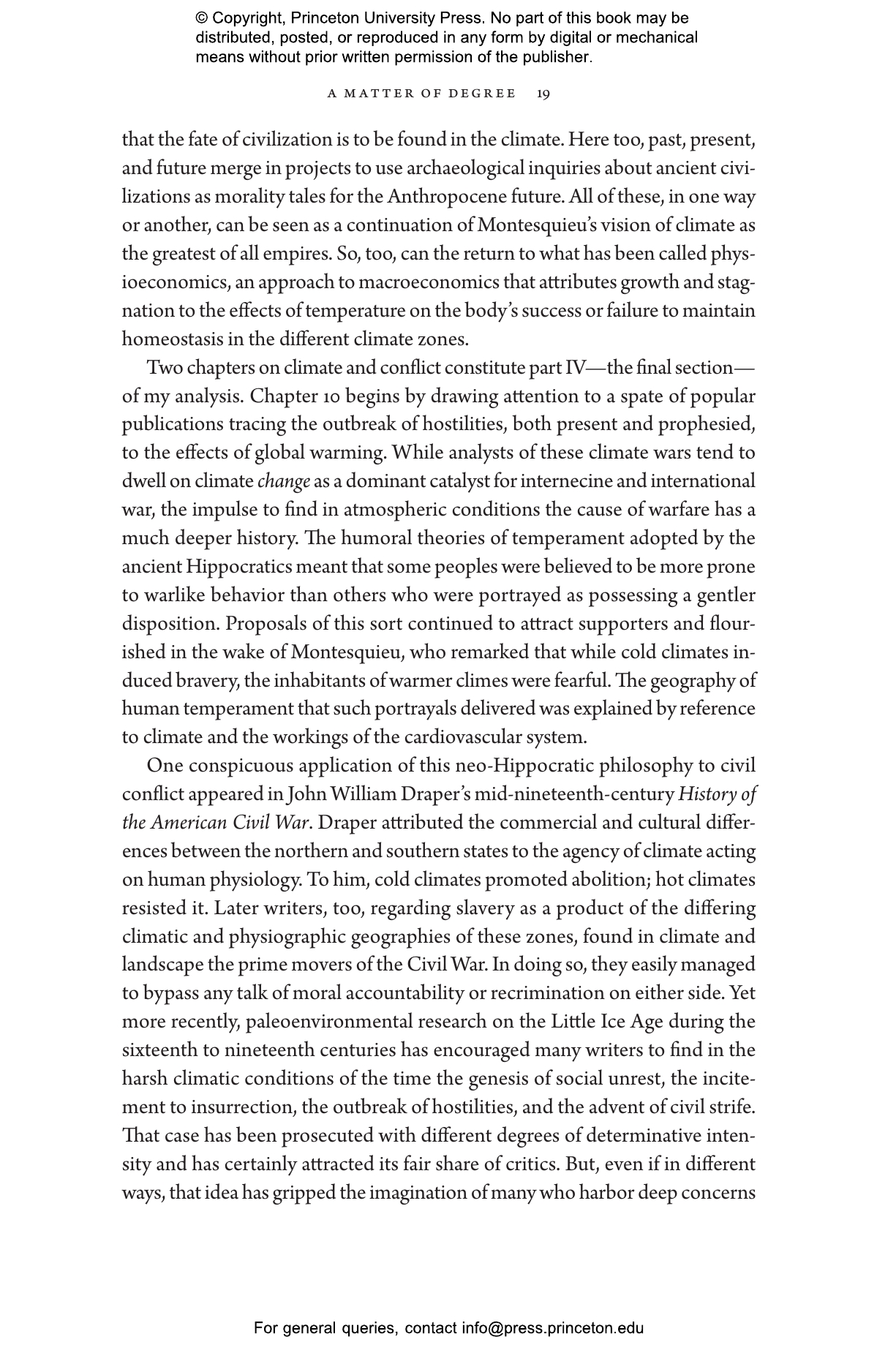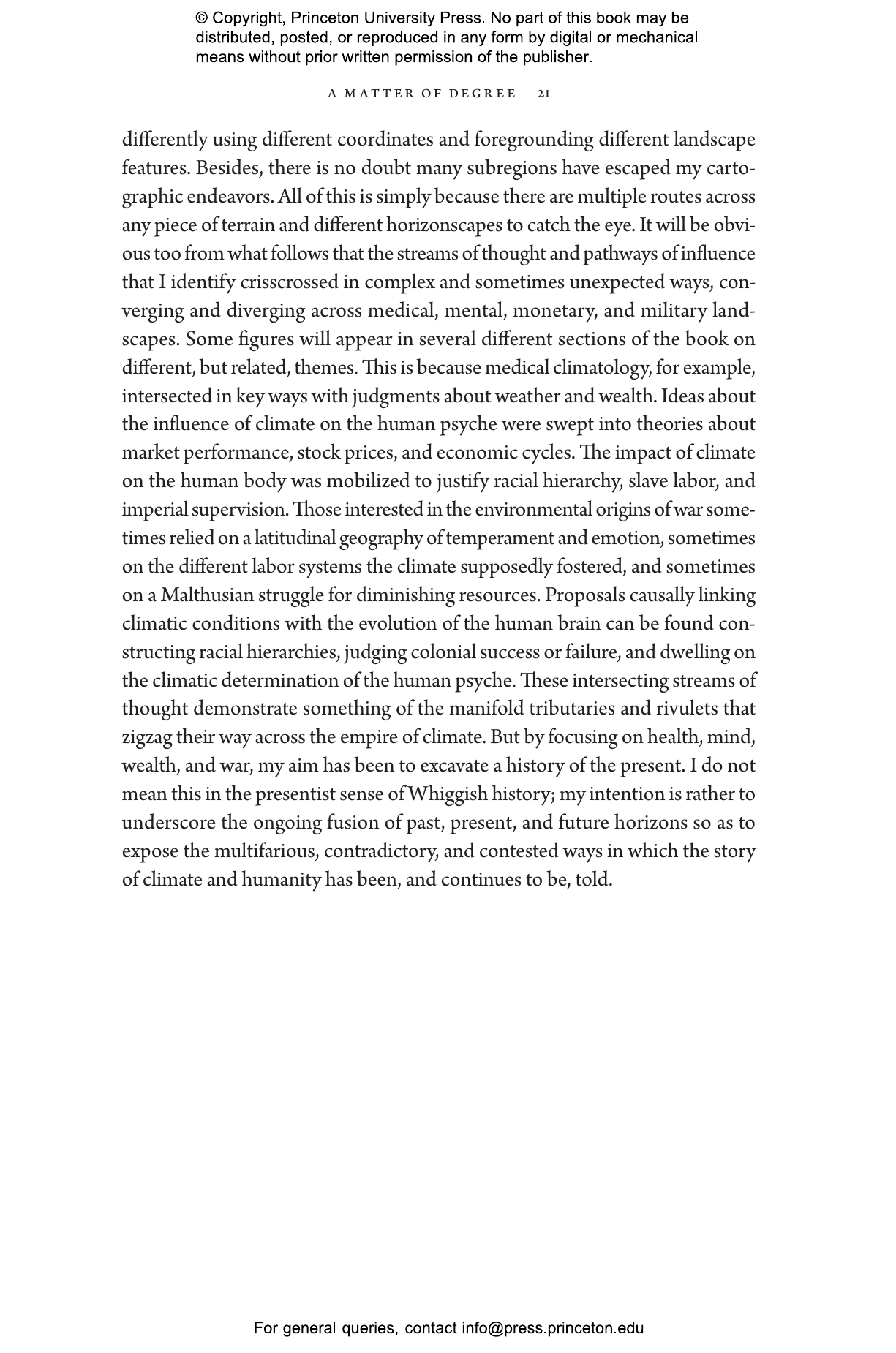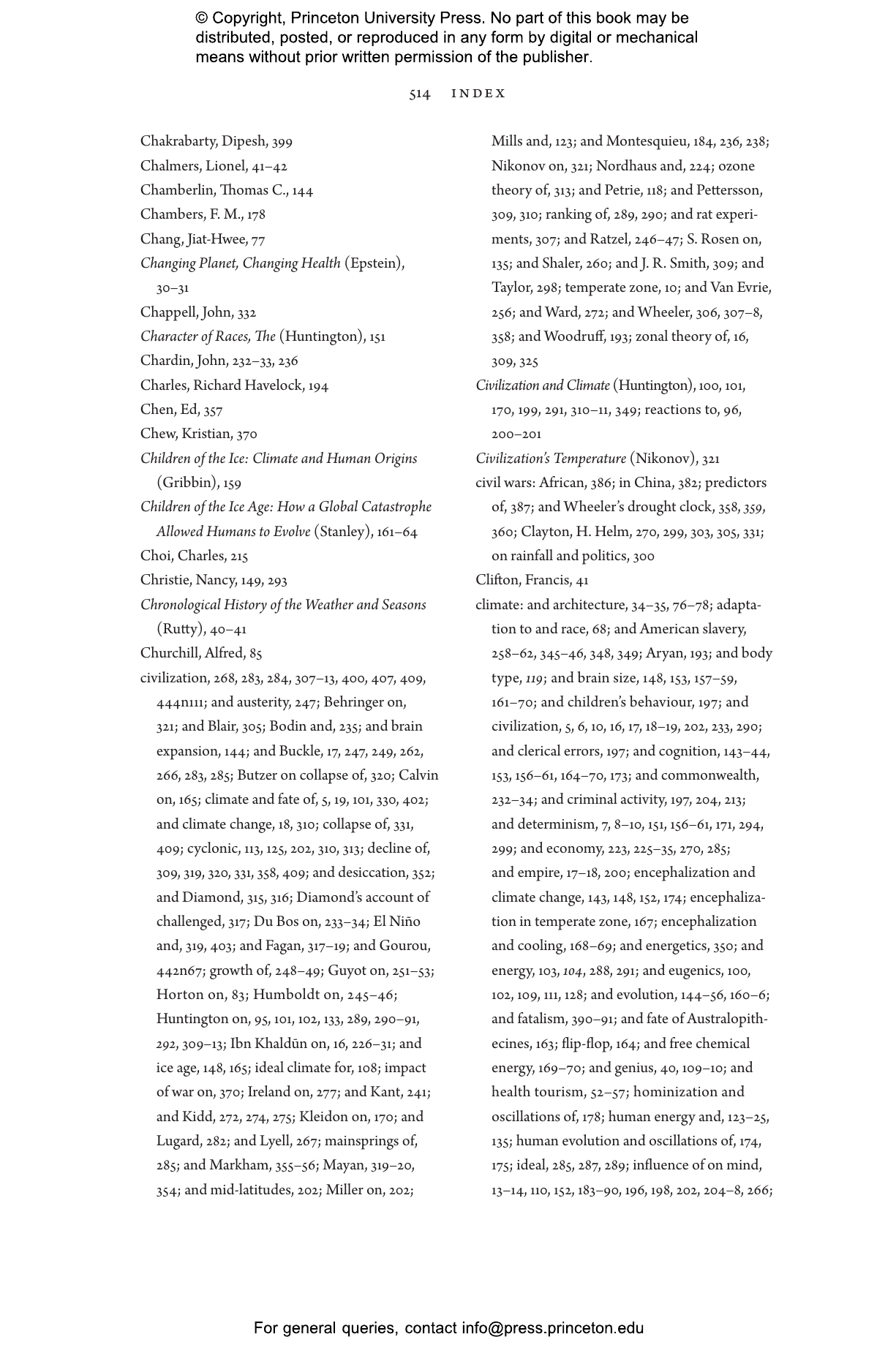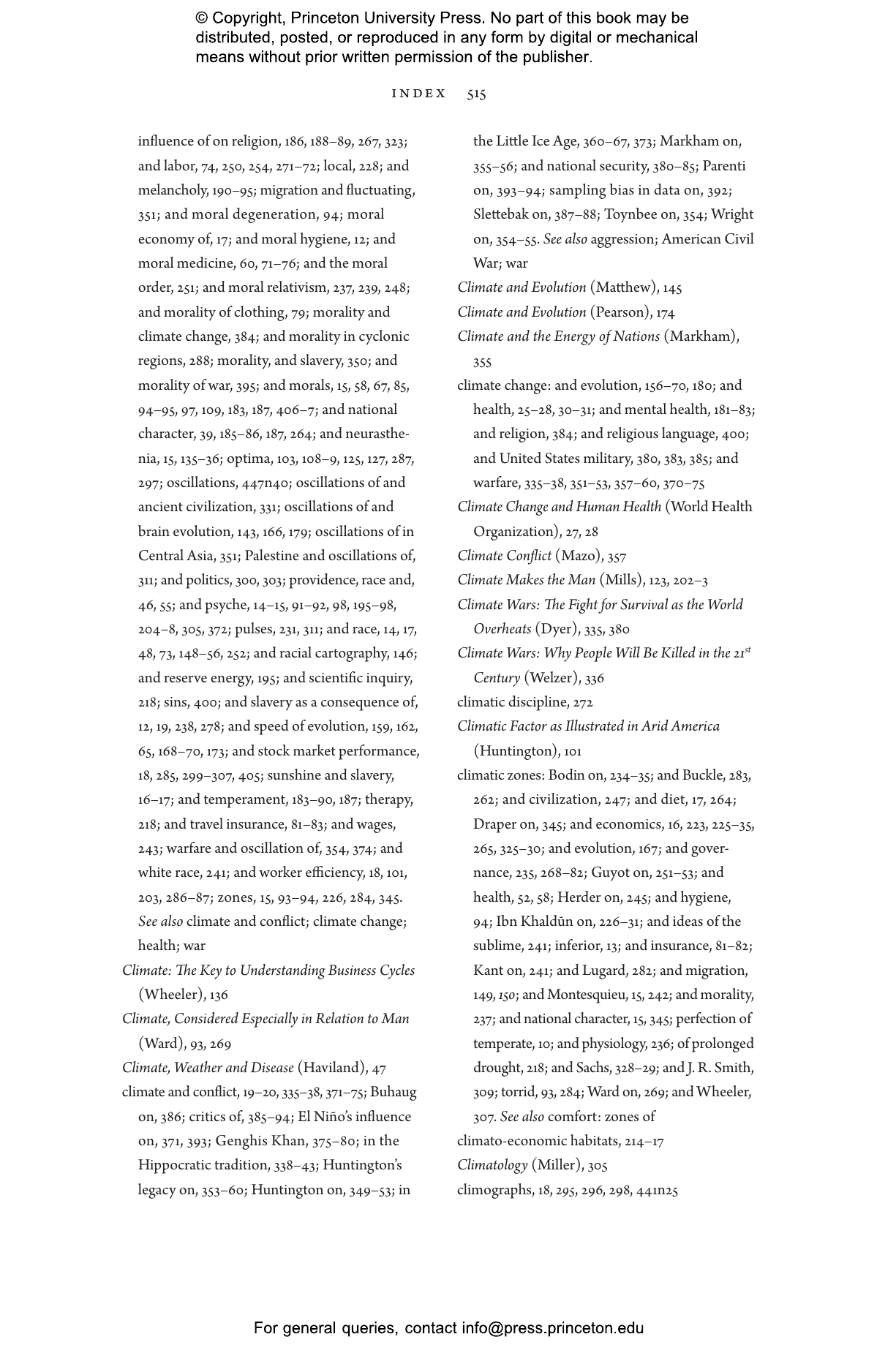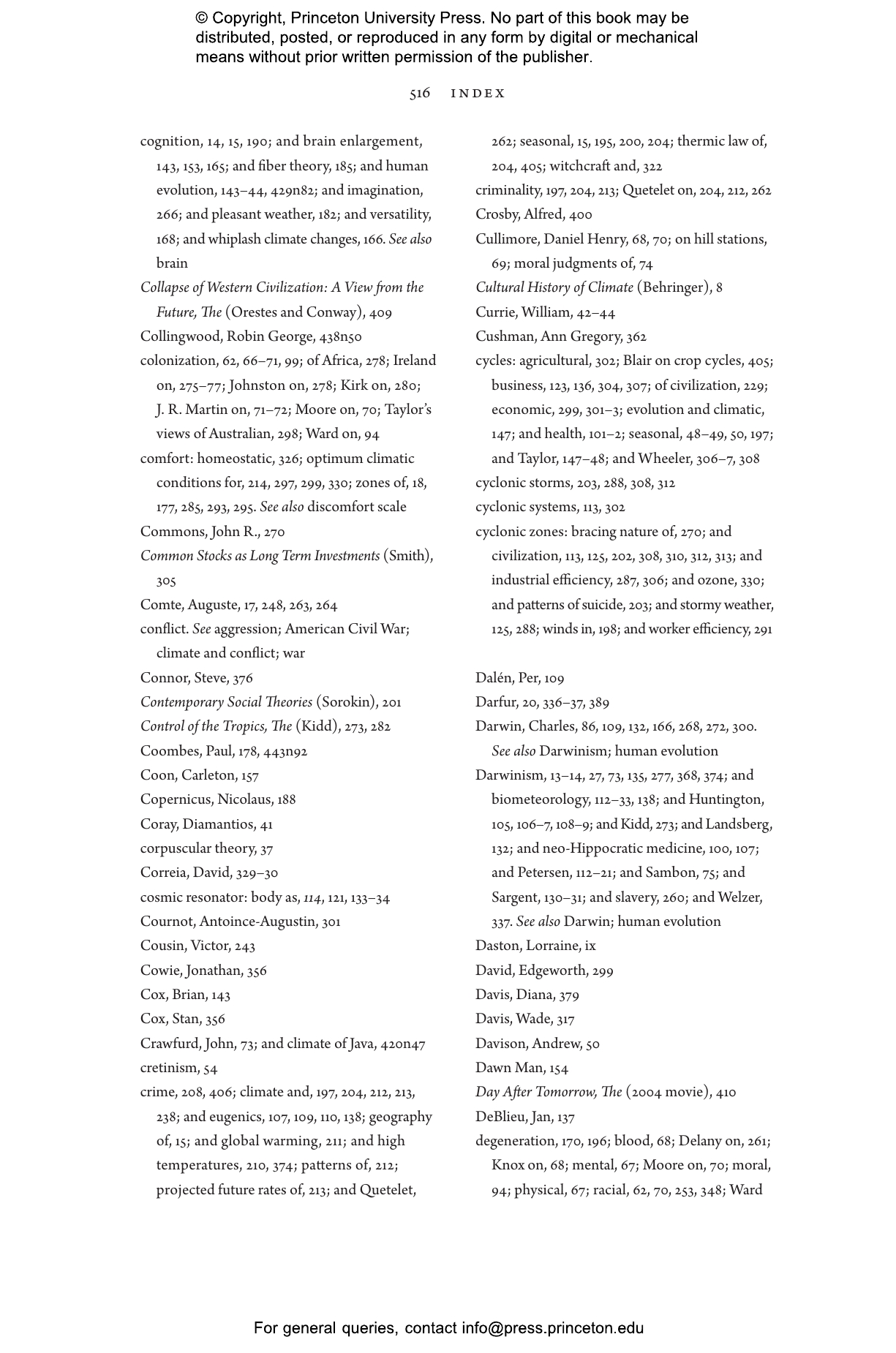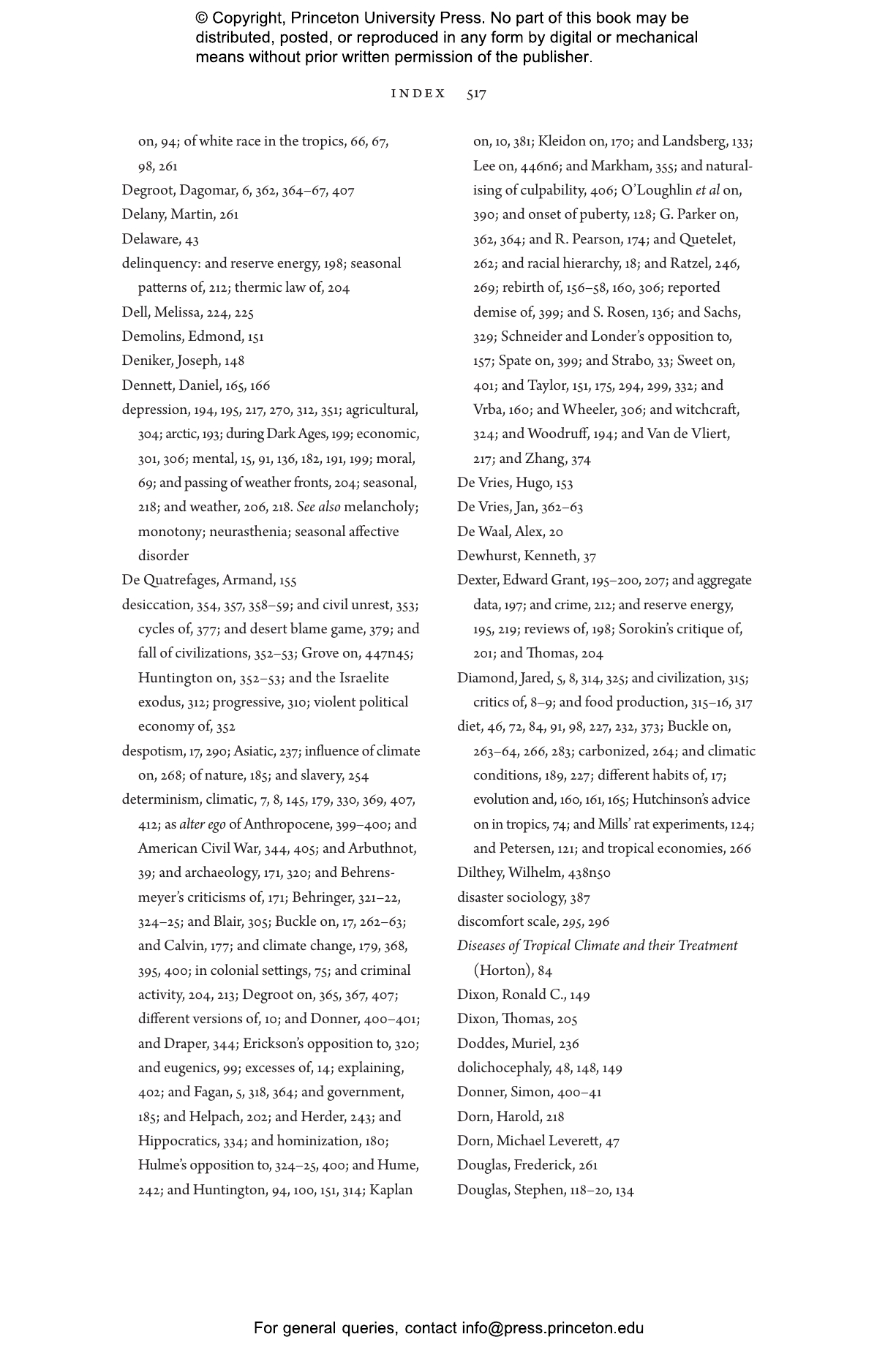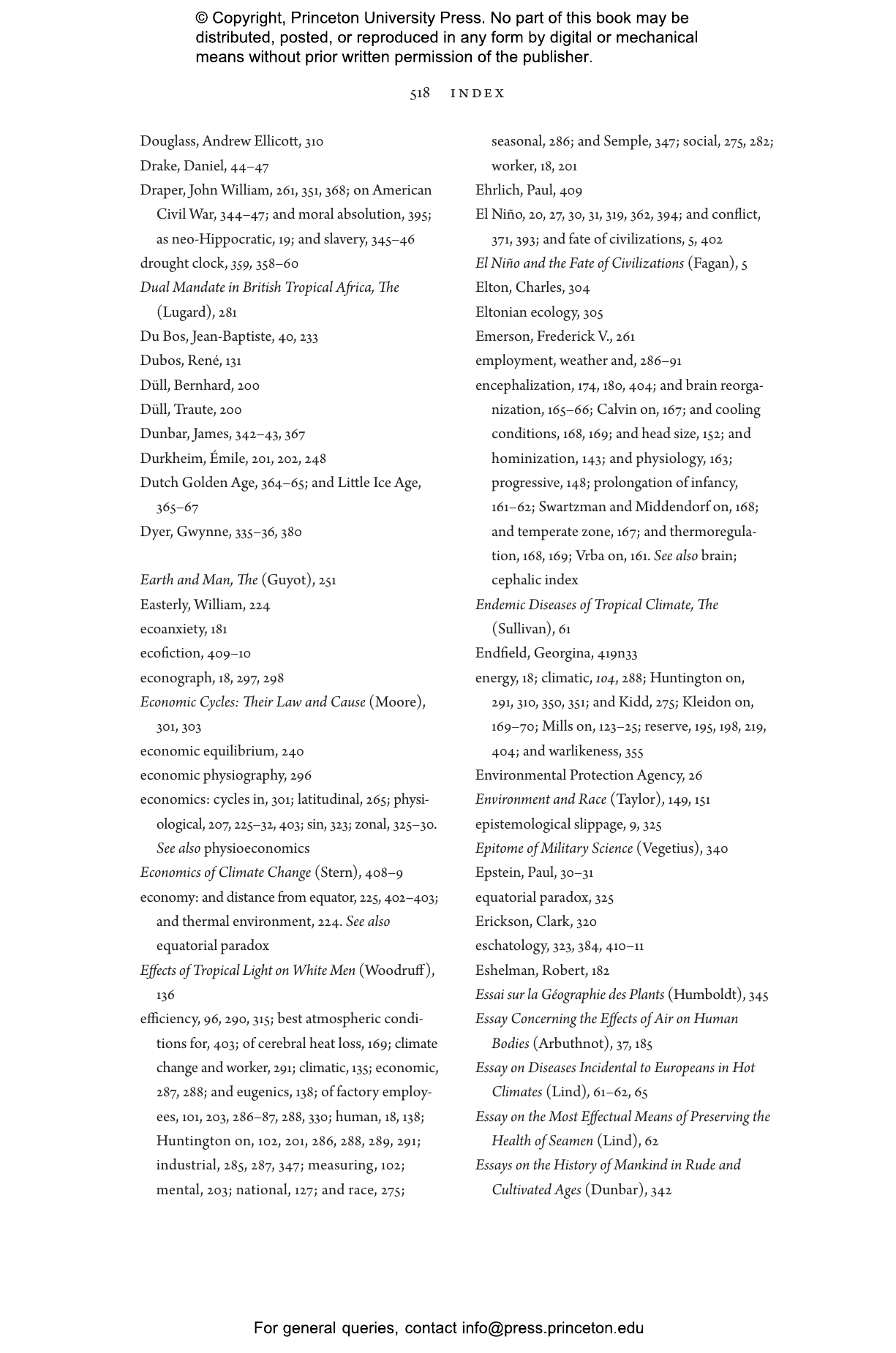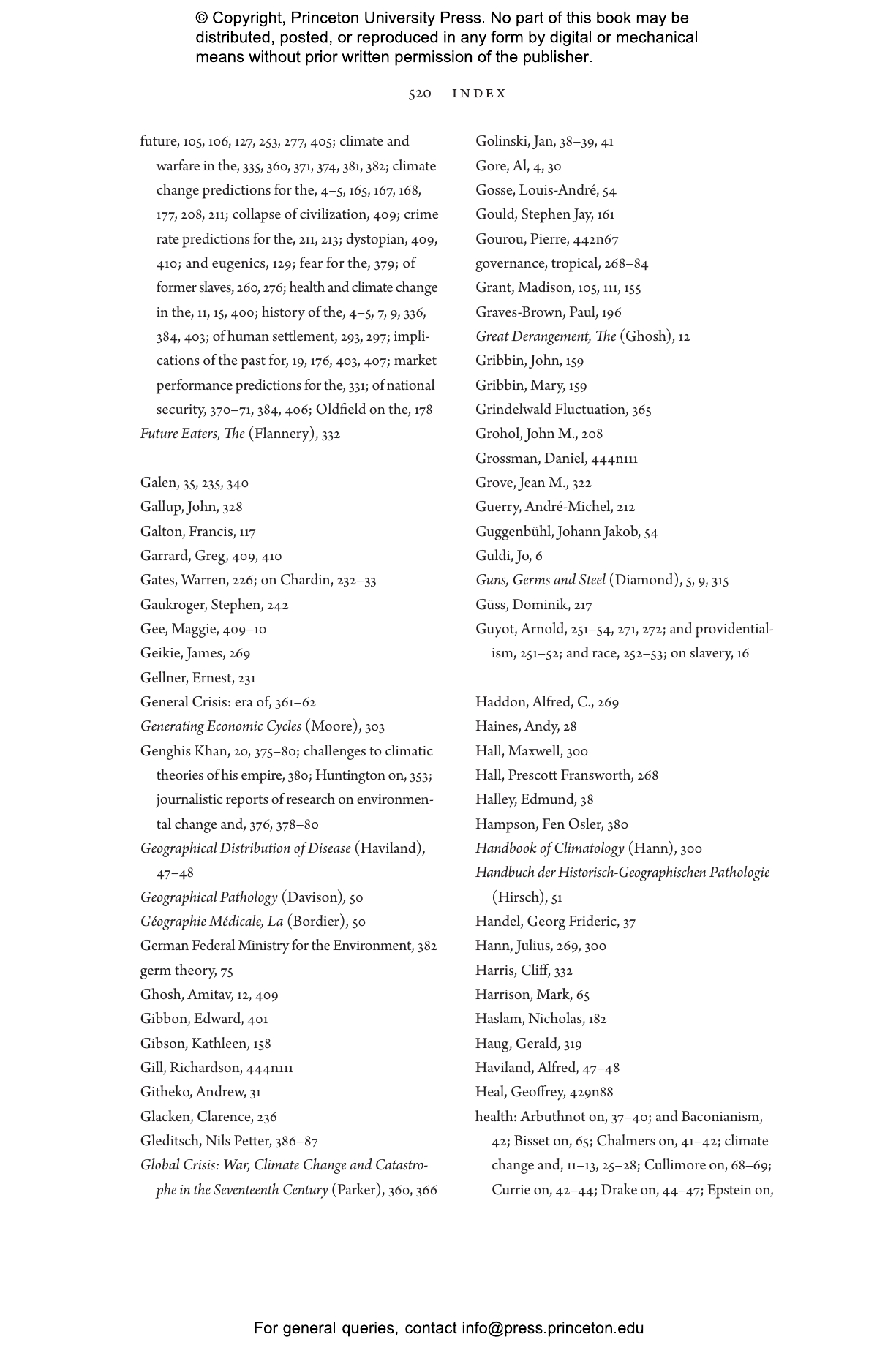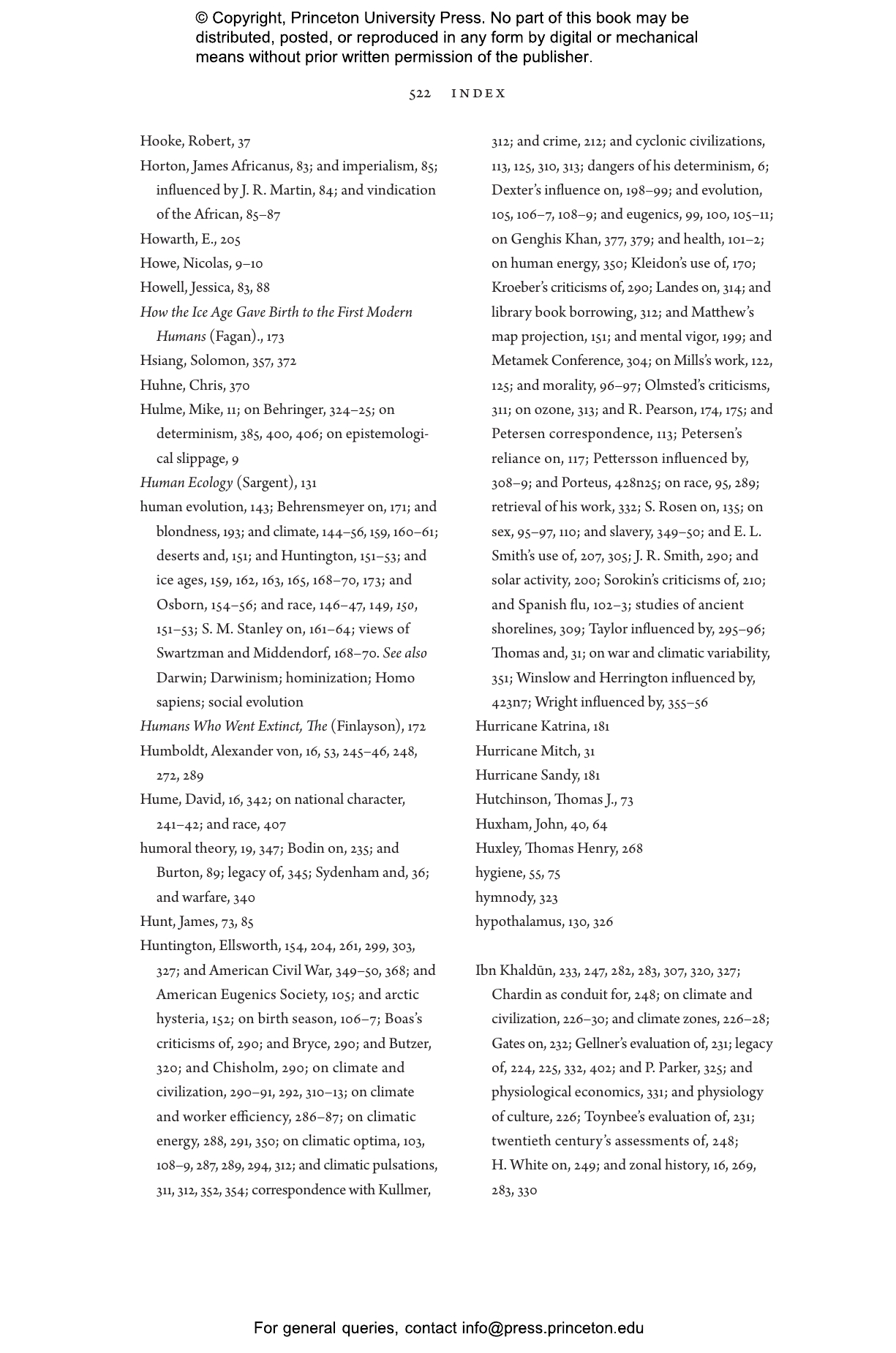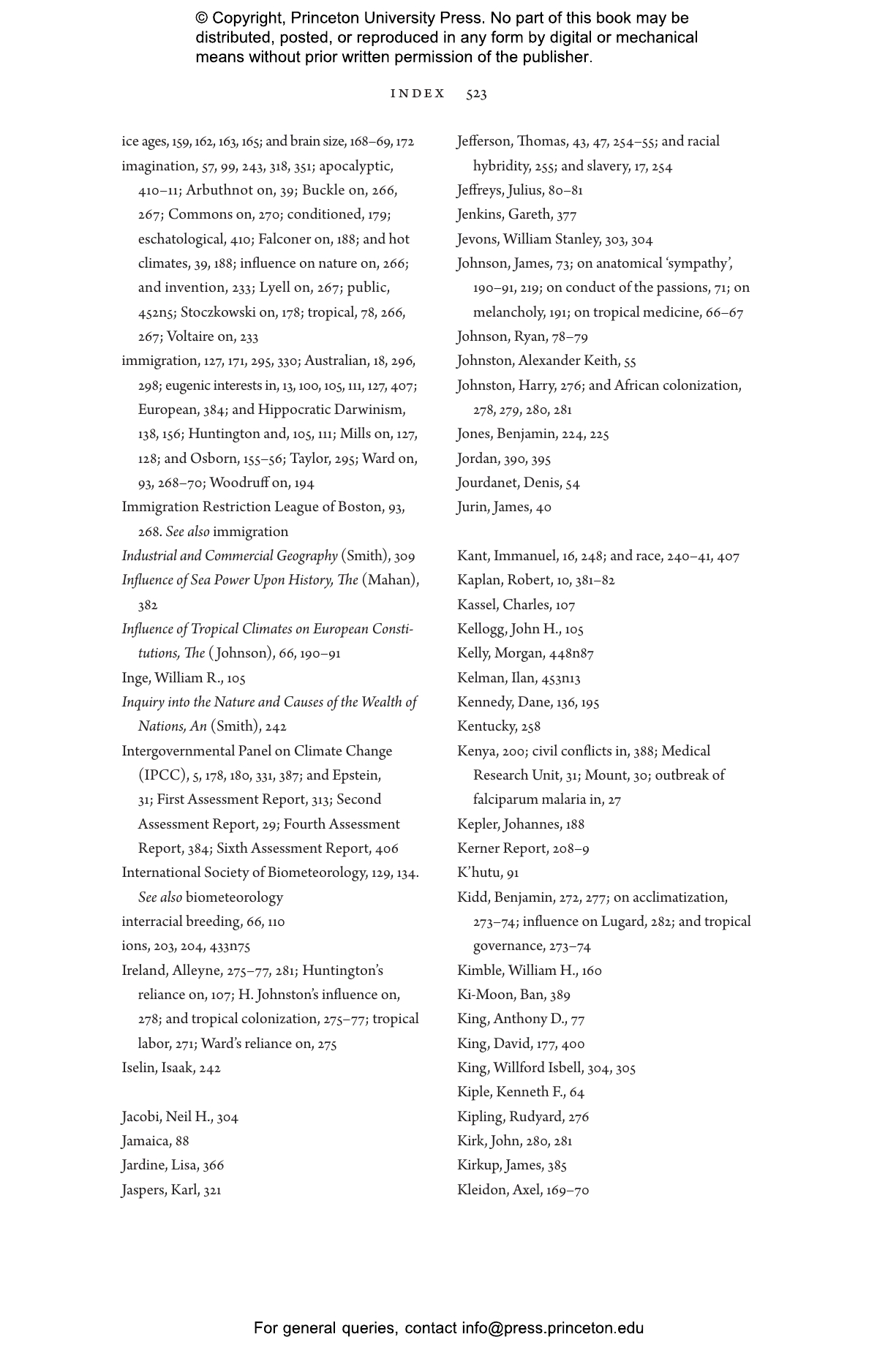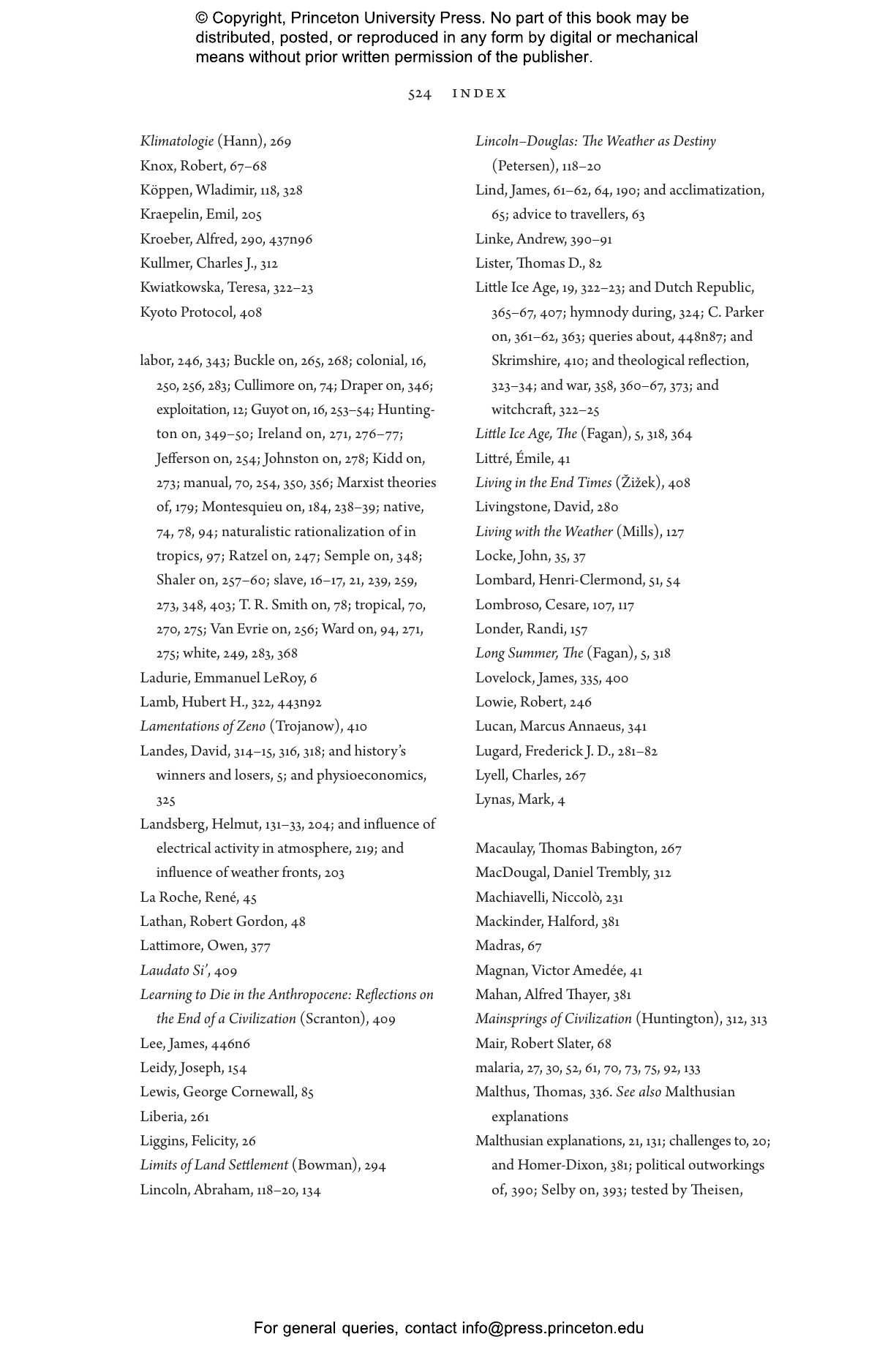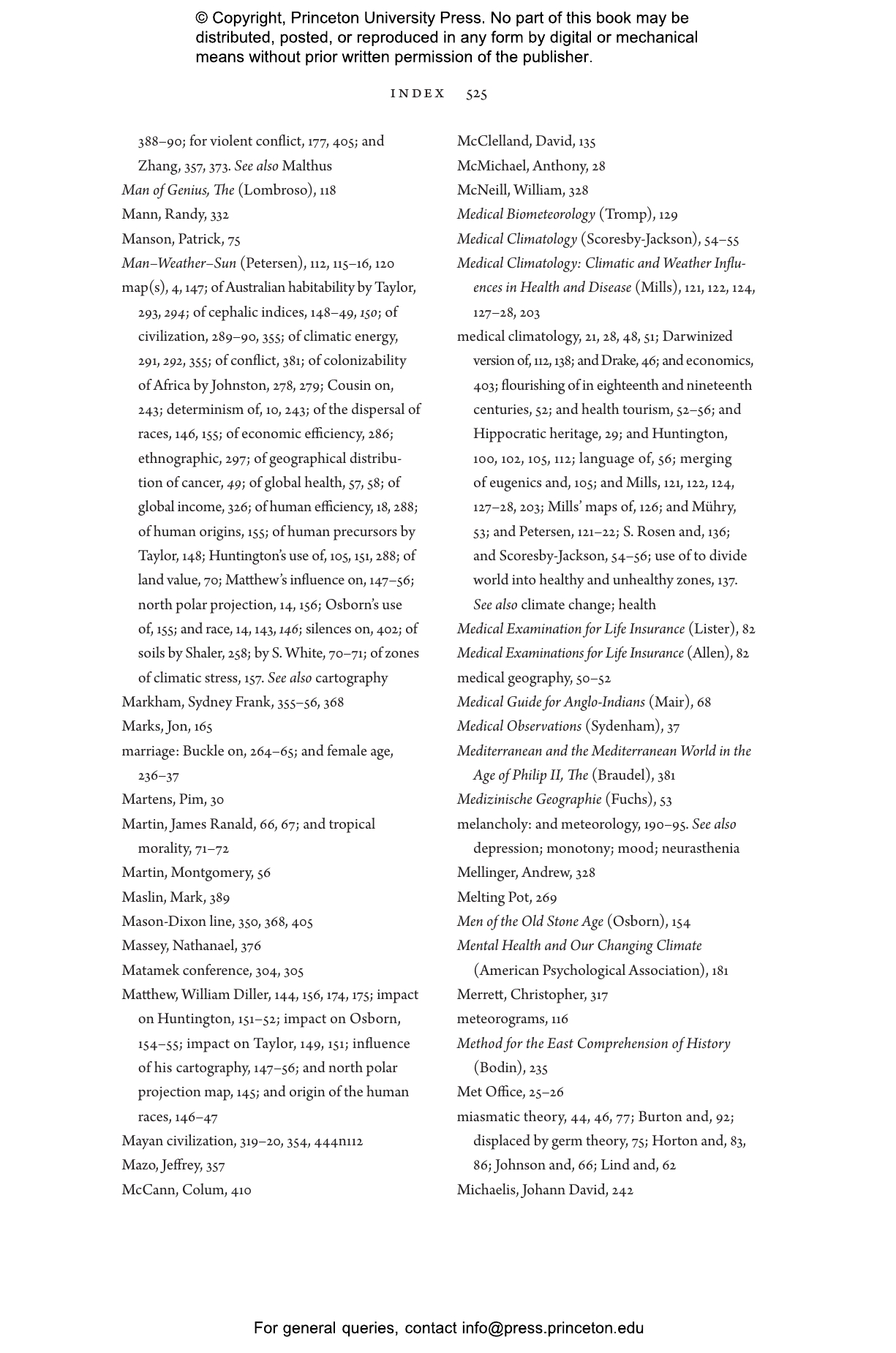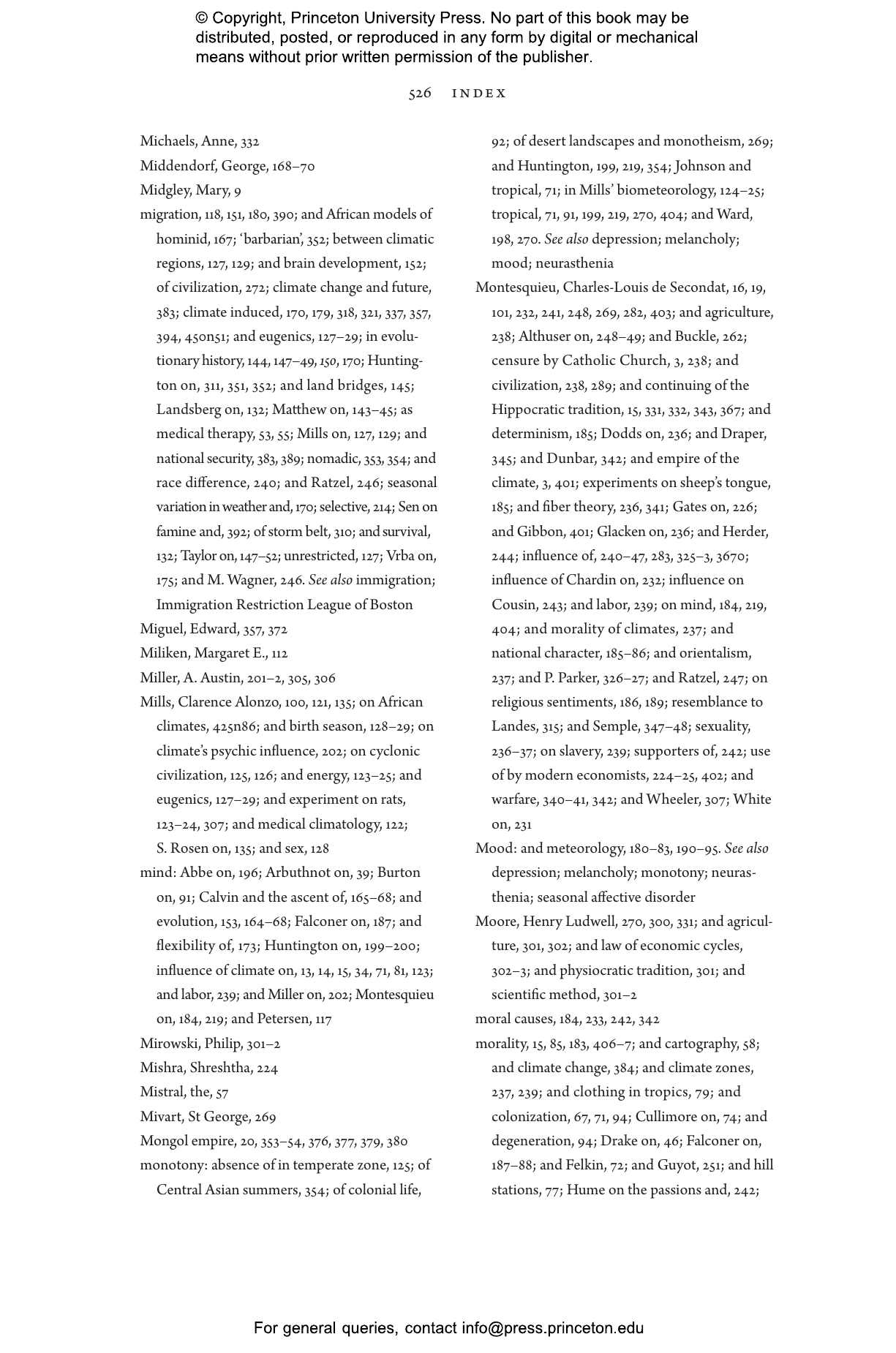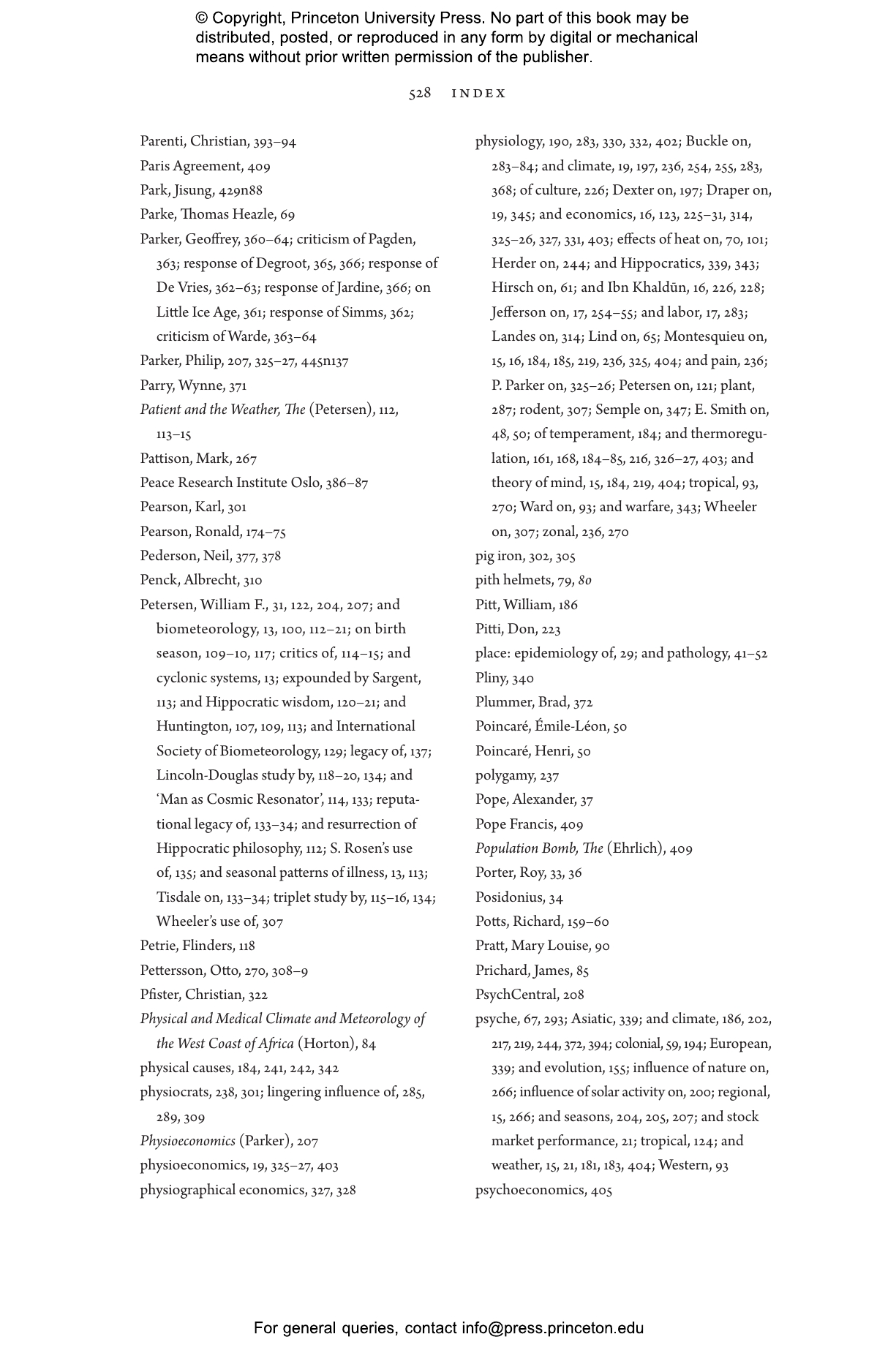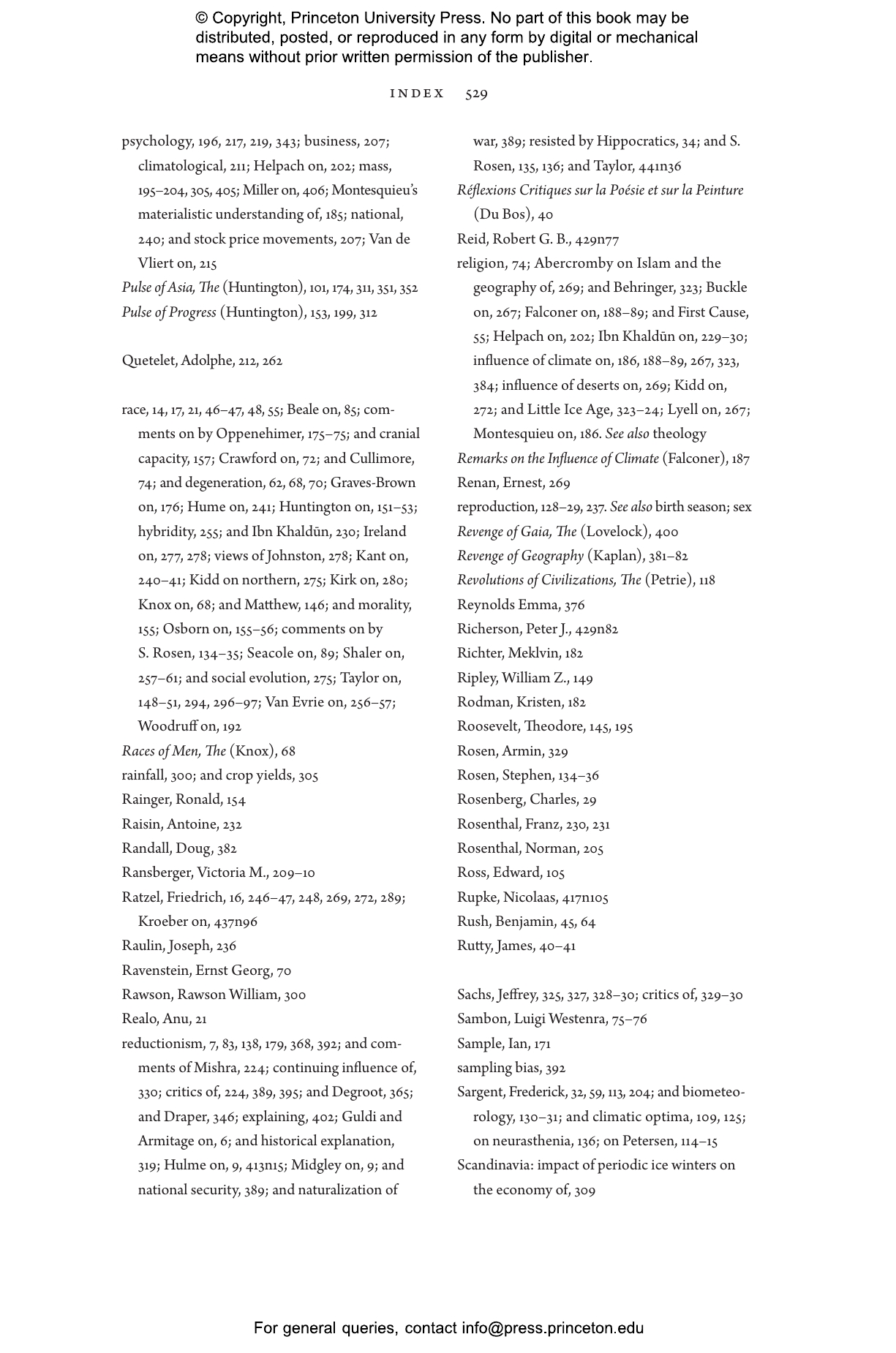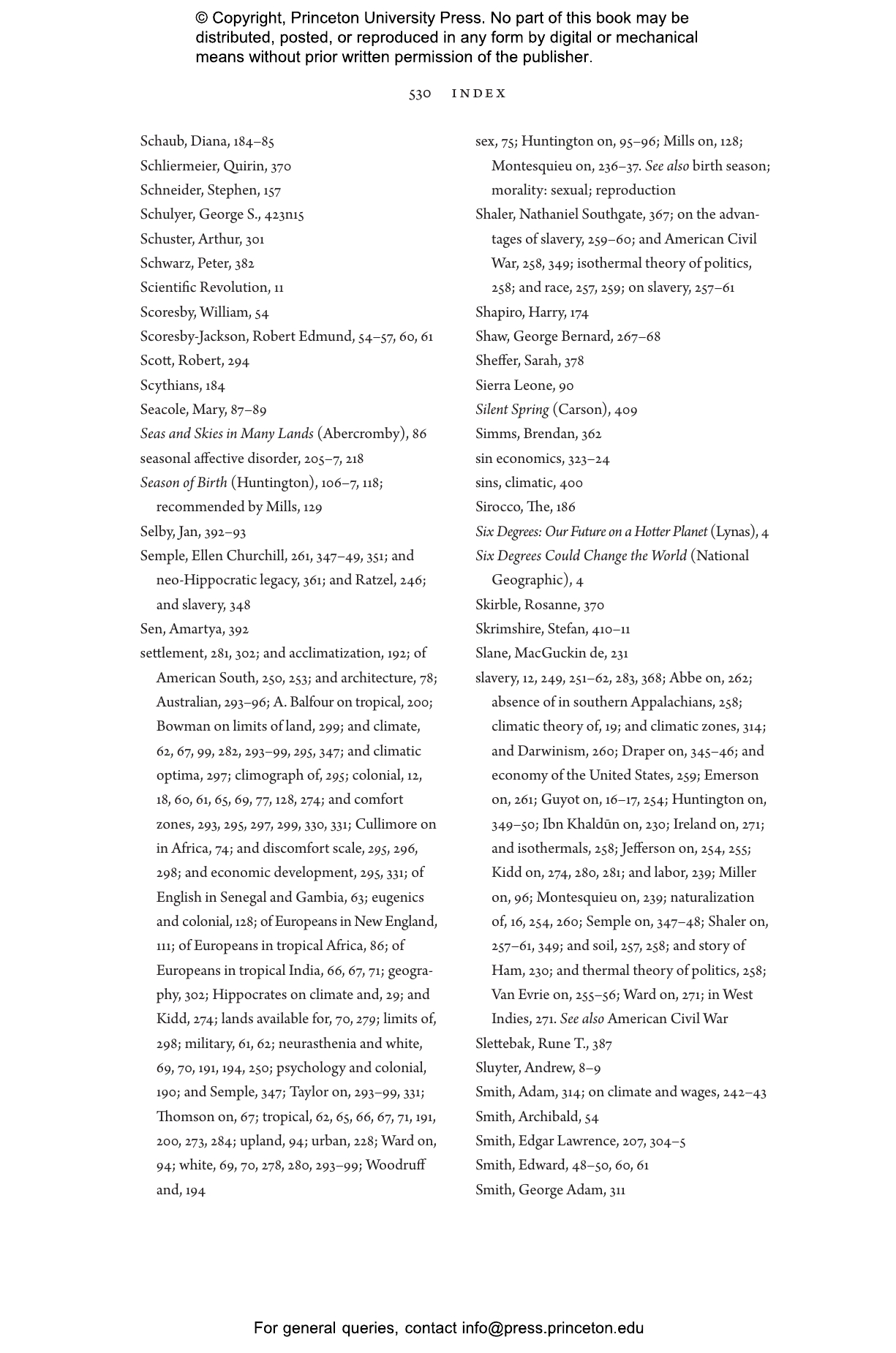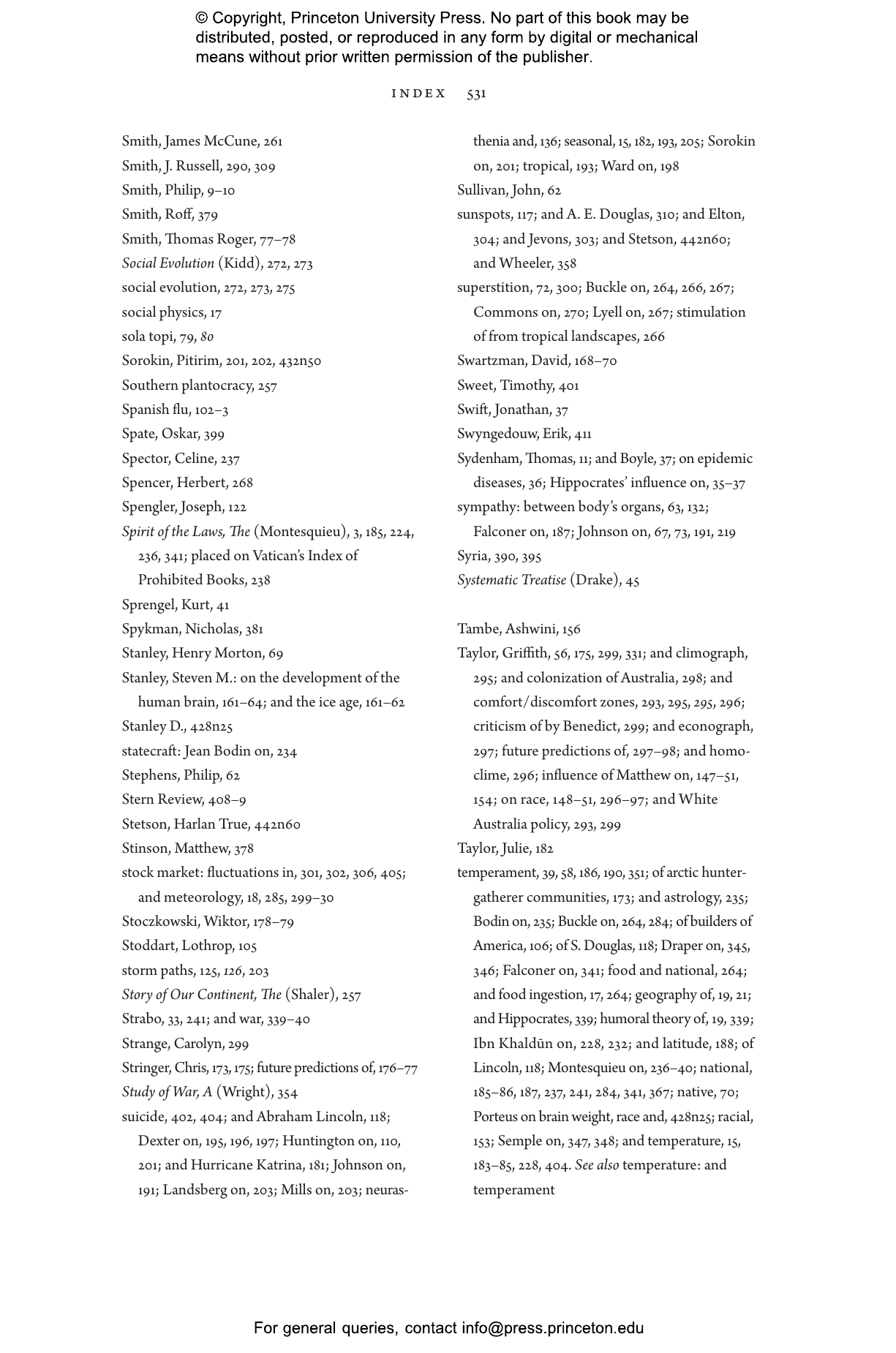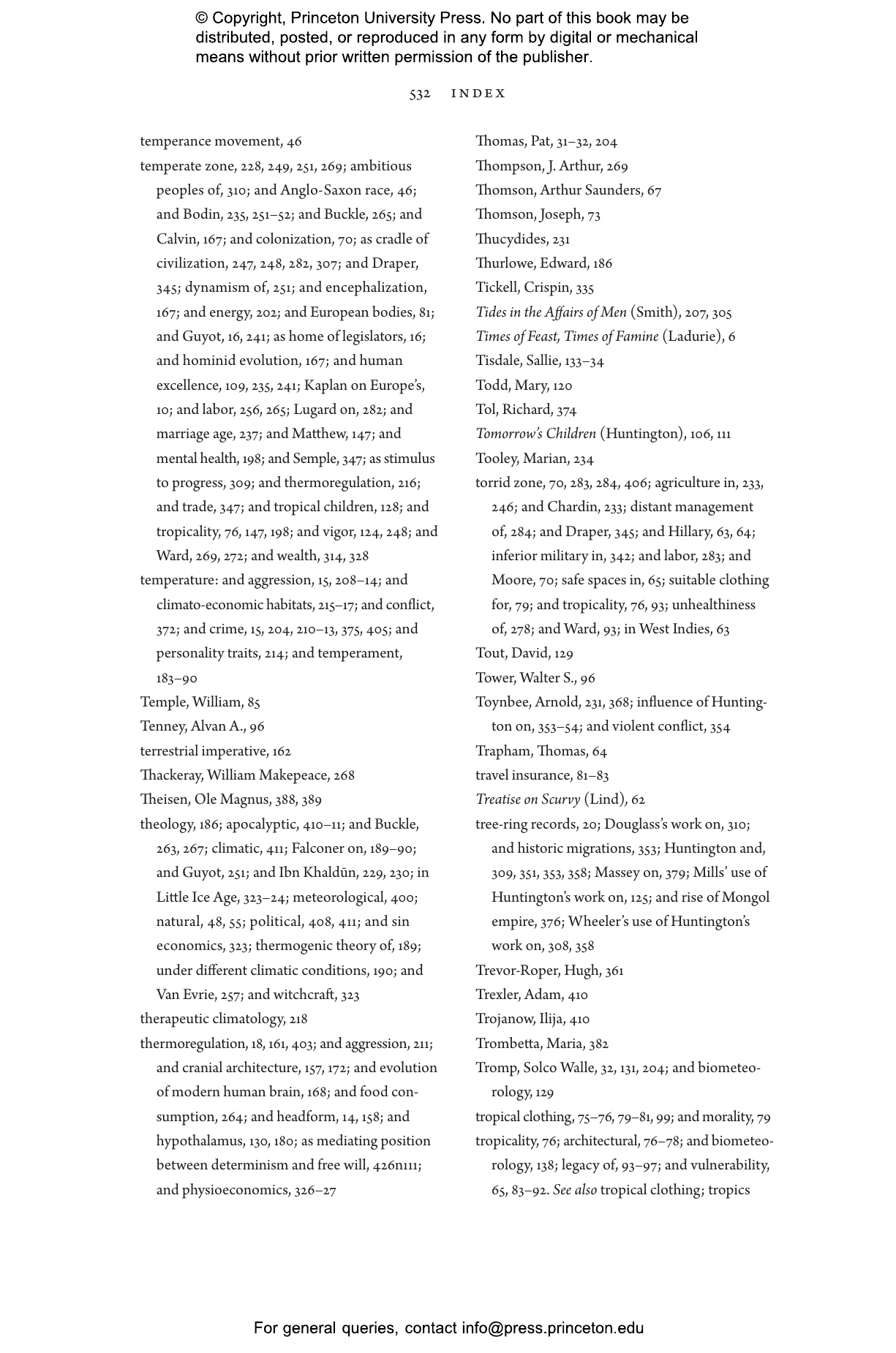Scientists, journalists, and politicians increasingly tell us that human impacts on climate constitute the single greatest threat facing our planet and may even bring about the extinction of our species. Yet behind these anxieties lies an older, much deeper fear about the power that climate exerts over us. The Empire of Climate traces the history of this idea and its pervasive influence over how we interpret world events and make sense of the human condition, from the rise and fall of ancient civilizations to the afflictions of the modern psyche.
Taking readers from the time of Hippocrates to the unfolding crisis of global warming today, David Livingstone reveals how climate has been critically implicated in the politics of imperial control and race relations; been used to explain industrial development, market performance, and economic breakdown; and served as a bellwether for national character and cultural collapse. He examines how climate has been put forward as an explanation for warfare and civil conflict, and how it has been identified as a critical factor in bodily disorders and acute psychosis.
A panoramic work of scholarship, The Empire of Climate maps the tangled histories of an idea that has haunted our collective imagination for centuries, shedding critical light on the notion that everything from the wealth of nations to the human mind itself is subject to climate’s imperial rule.
Awards and Recognition
- A Choice Outstanding Academic Title of the Year
"Livingstone’s book is striking in its ambition to narrate a wide-ranging history of the most significant political issue facing global humanity since 1945 . . . This approach makes for compelling reading and a major contribution to our overall understanding of the historical background to the current environmental crises."—James Cullis, History of European Ideas
"A monumental work of scholarship, representing and reflecting a life-time's research by one of the most important historical geographers of his generation. David Livingstone has been working on issues of environmental determinism, acclimatisation and empire for almost forty years. This book brings that important scholarship together to consider how climate-society relations have been understood in several key arenas over long periods of time and across diverse geographical contexts."—Simon Naylor, Journal of Historical Geography
"Impressive and encyclopedic. . . . With the convergence of the climate crisis and right-wing populism around the world, xenophobic ecofascism will likely have appeal, drawing on, as Livingstone has assiduously demonstrated, a long legacy. Much work remains to be done. Science journalists—and all of us—should take note."—Samuel Dolbee, H-Net Reviews
"An invaluable starting point for geographers, historians and those within and beyond the academy interested in the long history – and present and future – of assigning historical causality to climate. Frankly, this needs to be all of us."—Lachlan Fleetwood, Climates and Cultures in History
"Given the growing threat that climate change poses for the future of humanity, Livingstone’s magisterial survey of historical ideas about climate’s impact on individuals and societies could not be more timely or cautionary."—Dane Kennedy, Journal of Interdisciplinary History
"Deeply impressive. . . . The Empire of Climate is essential reading. It is a stunning achievement."—Philip Jenkins, Christian Century
"An extremely rich scholarly interrogation of the ways in which climate as an idea, has been adopted and adapted in the pursuit of particular goals, to justify imperialism and geopolitical ambitions; to explain difference, whether this is in relation to race, ethnicity, gender, or place; to account for the rise of conflict; and, arguably, to displace or avert blame for more contemporary harms. . . . This is without a doubt a benchmark publication."—Georgina Endfield, AAG Review of Books
"David Livingstone’s The Empire of Climate: A History of an Idea provides a rich and detailed chronicle of how climate has been used to explain human civilization, from the 5th century BCE to the present day . . . [It] offers the best and most up-to-date overview of and introduction to a way of understanding the world that, despite having a long and inglorious past, may well have a long and influential future."—John Emrys Morgan, Ler História
"[A] sweeping chronicle. . . . Livingstone’s consummate analysis drives home how blaming people’s behavior on climate risks repeating the imperious and racist justifications for colonialism and slavery."—Publishers Weekly
"[A] fascinating study. . . . Highly recommended."—Choice
"Brilliant and multifaceted."—David Lorimer, Paradigm Explorer
“This brilliant, insightful, and important book reveals the deep-seated links between climate, capitalism, and civilization. Livingstone is on top of his game as he moves from early ideas about the climatic determinants of health and wealth to the politics of imperial control, representations of national character, modern economic development, and the pursuit of war, to end with our own horrified recognition of likely global collapse. There could be no better scholarly guide to thinking about the cultural meanings of climate and its history.”—Janet Browne, author of Charles Darwin: Voyaging and Charles Darwin: The Power of Place
“There are two serious mistakes that can be made when judging the influence of climate on human affairs. One is to ignore it completely; the other to grant climate excessive explanatory power over our minds, health, wealth, and misfortunes. In The Empire of Climate, Livingstone shows with erudition and clarity how, in our current climate-obsessed condition, we are failing to learn from our past about the grave cultural, political, and ethical dangers that follow from this latter mistake.”—Mike Hulme, University of Cambridge
“This is the magnum opus of one of the world’s leading historians of environmental ideas and the distillation of decades of research. Spanning antiquity to the Anthropocene, Livingstone offers compelling genealogies of how Western thinkers have conceptualized the linkage between the physical environment and climate on the one hand and human beings on the other. The Empire of Climate is both historically rich and pointedly pertinent as we map humanity’s relationship with the planet now and into the future.”—Robert J. Mayhew, editor of Debating Malthus: A Documentary Reader on Population, Resources, and the Environment
“A masterful and exemplary overview of the impact of thought about climate on our sociopolitical life.”—Nicolaas A. Rupke, author of Alexander von Humboldt: A Metabiography
This publication has been produced to meet accepted Accessibility standards and contains various accessibility features including concise image descriptions, a table of contents, a page list to navigate to pages corresponding to the print source version, and elements such as headings for structured navigation. Appearance of the text and page layout can be modified according to the capabilities of the reading system.
Accessibility Features
-
WCAG v2.2
-
WCAG level AA
-
Table of contents navigation
-
Single logical reading order
-
Short alternative textual descriptions
-
Print-equivalent page numbering
-
Landmark navigation
-
Index navigation
-
Epub Accessibility Specification 1.1
-
ARIA roles provided
-
All non-decorative content supports reading without sight
-
No known hazards or warnings



